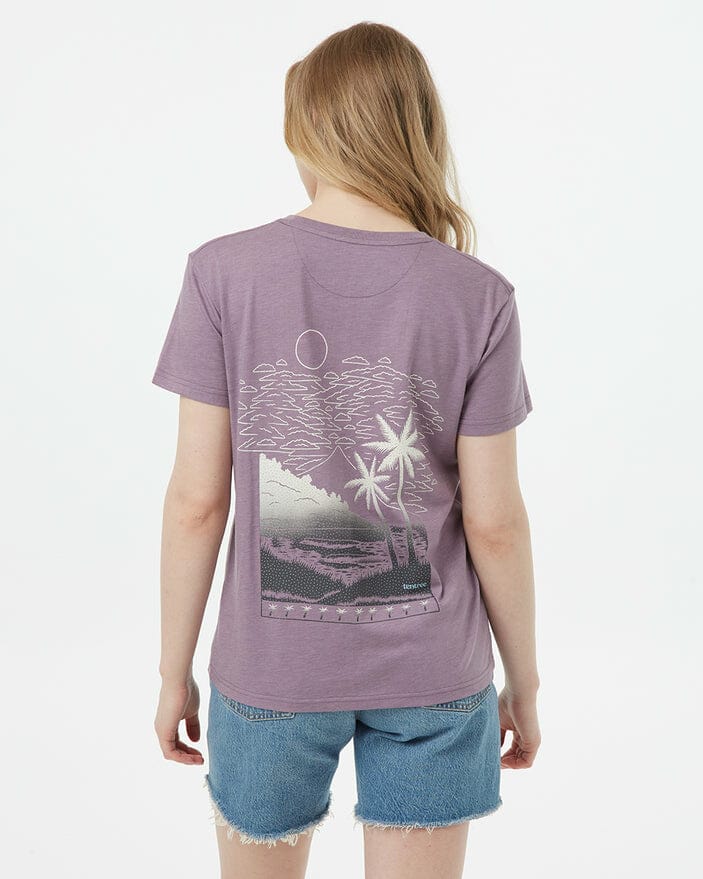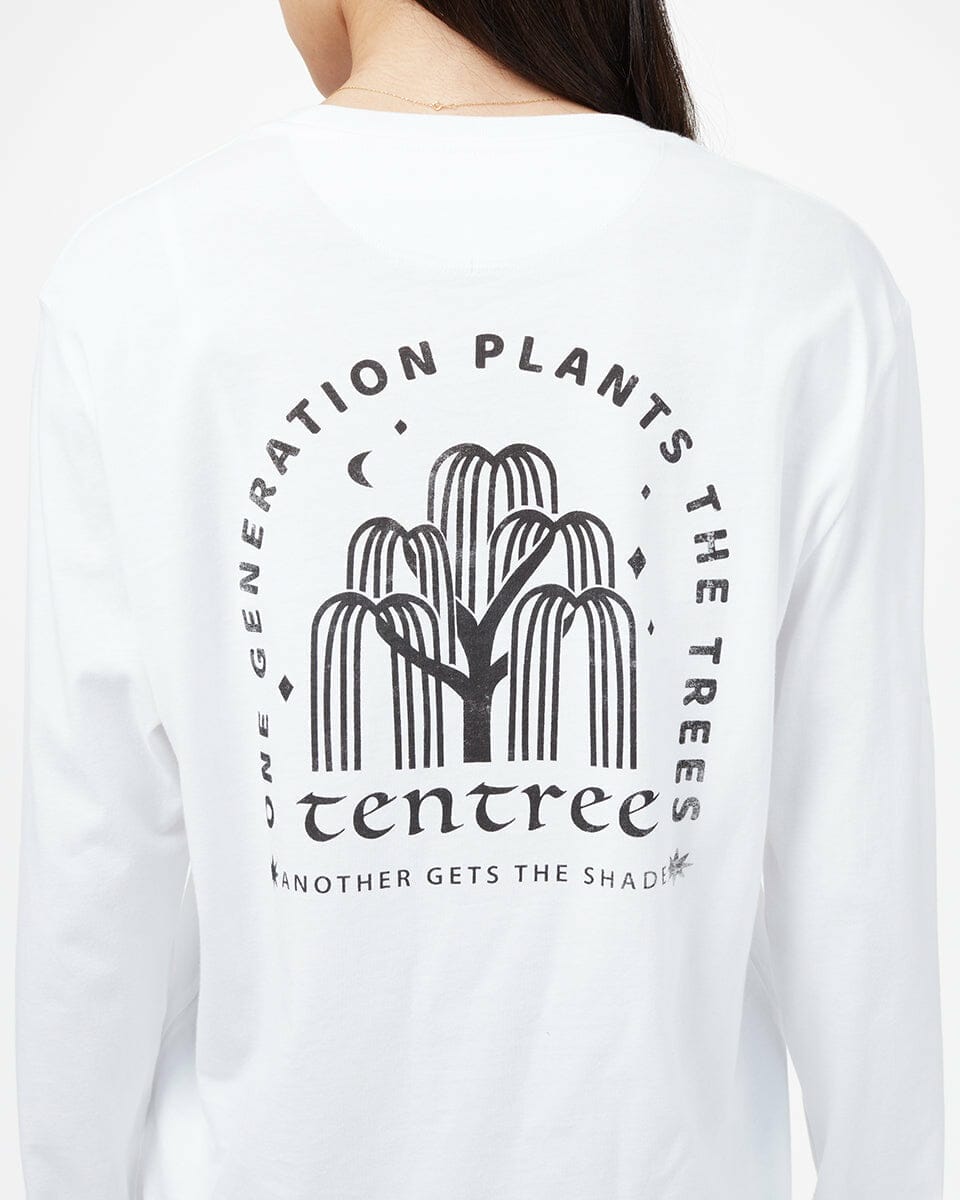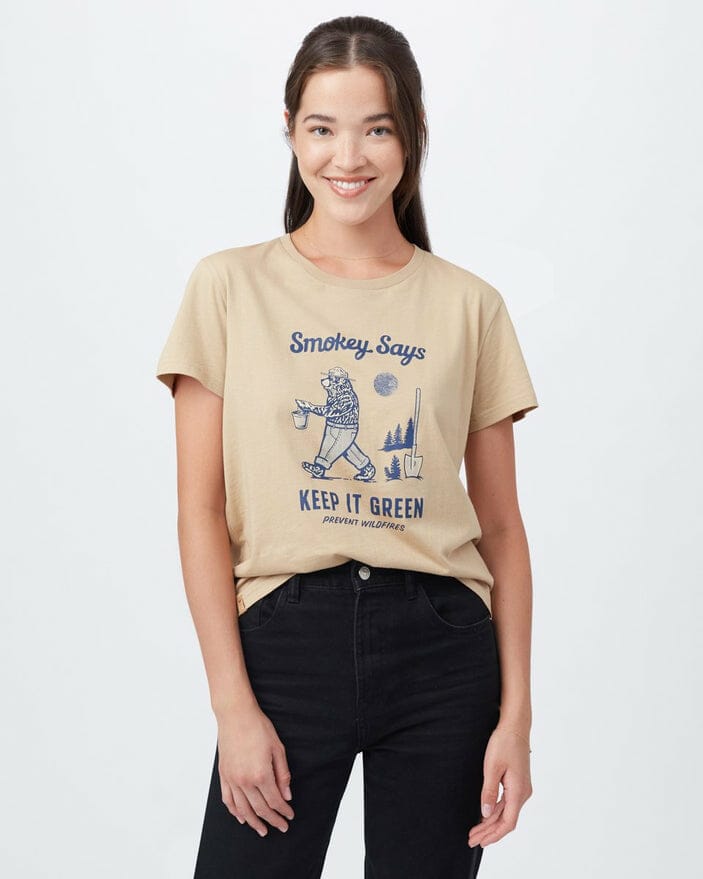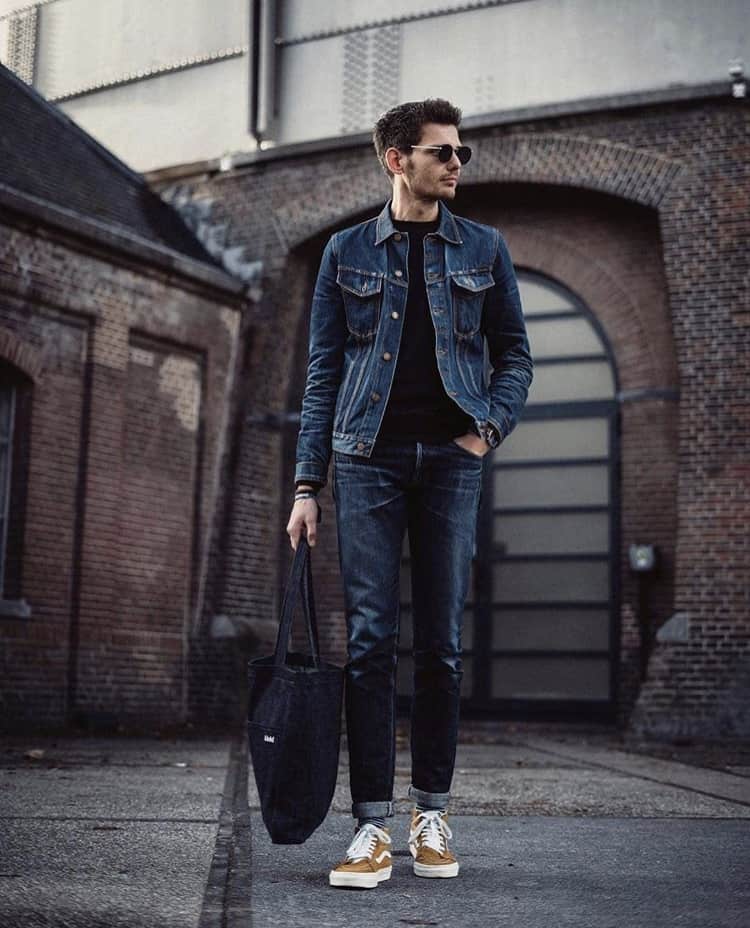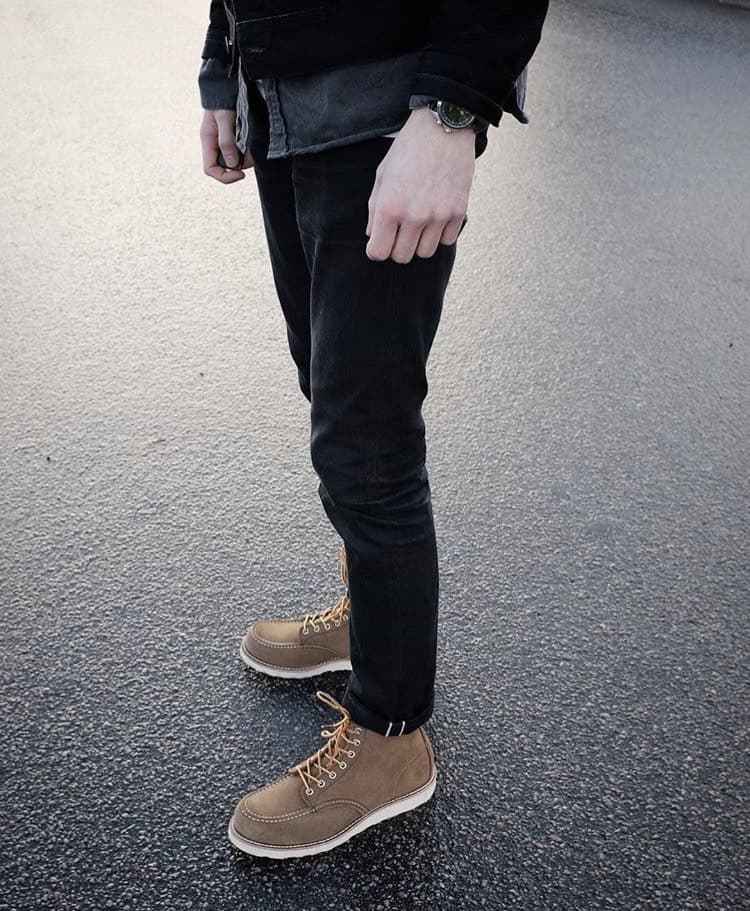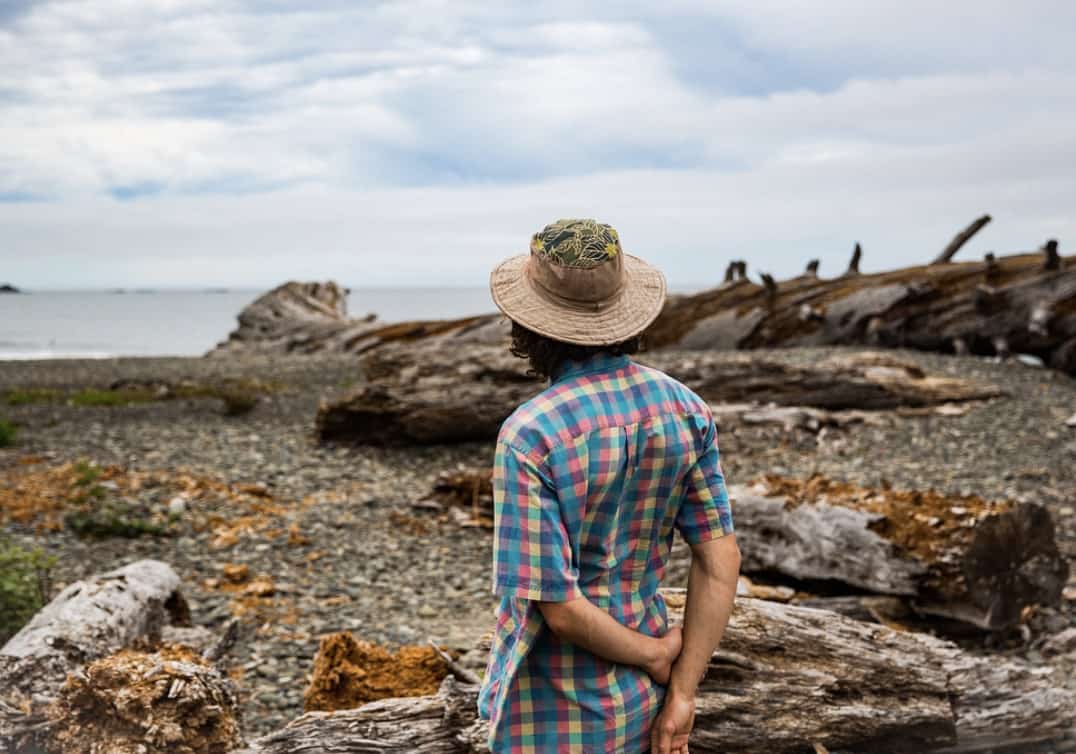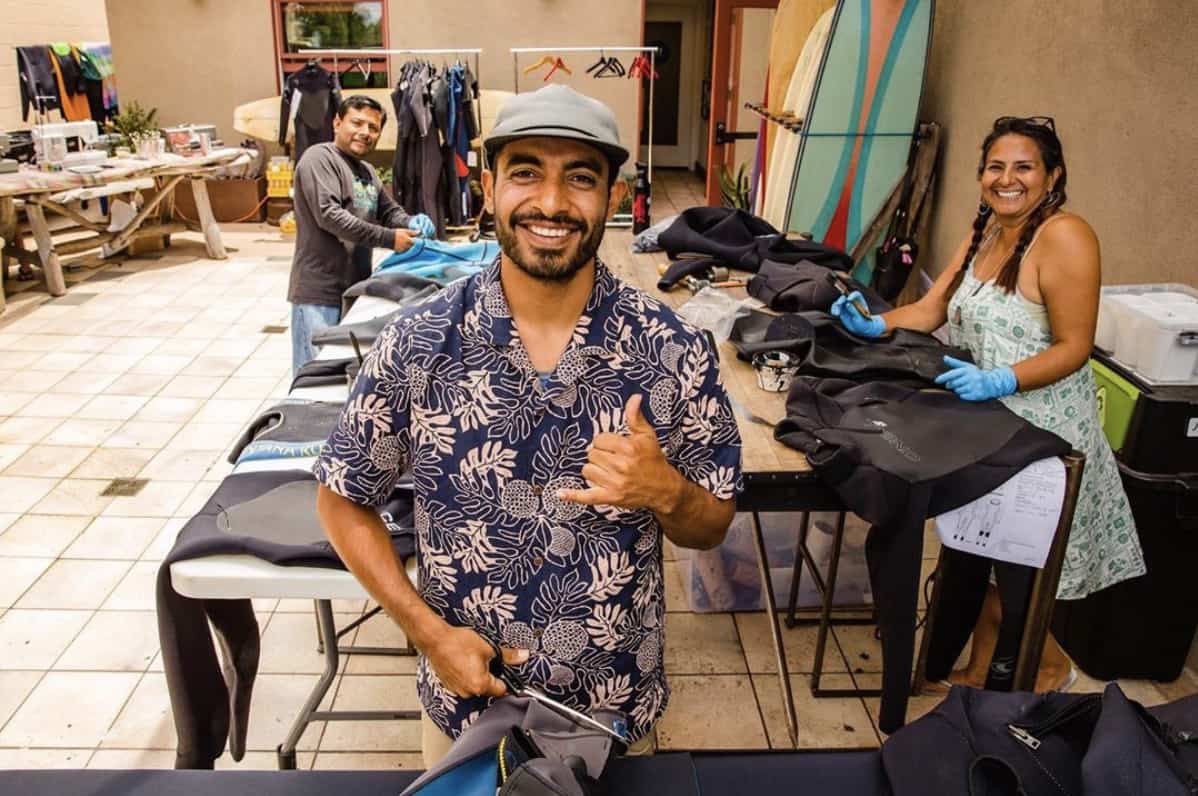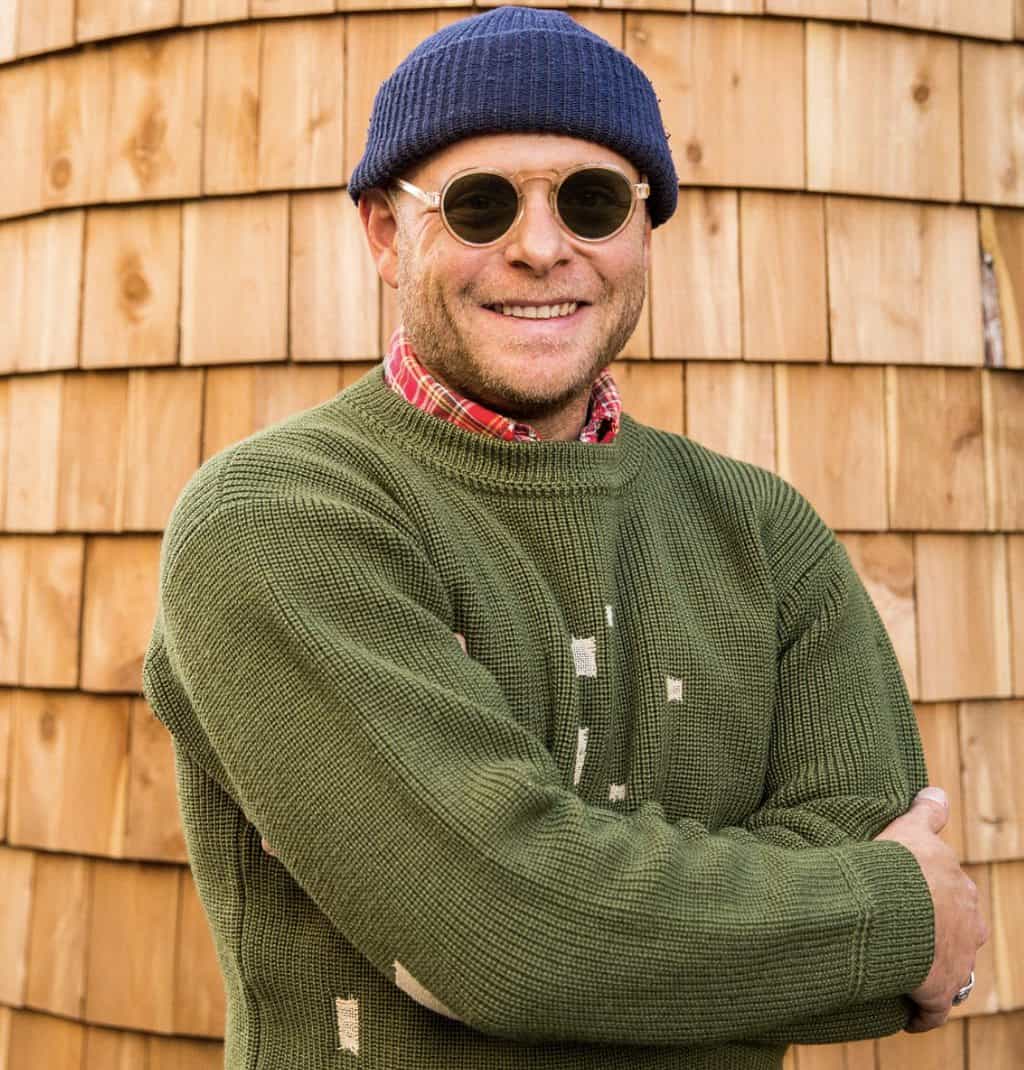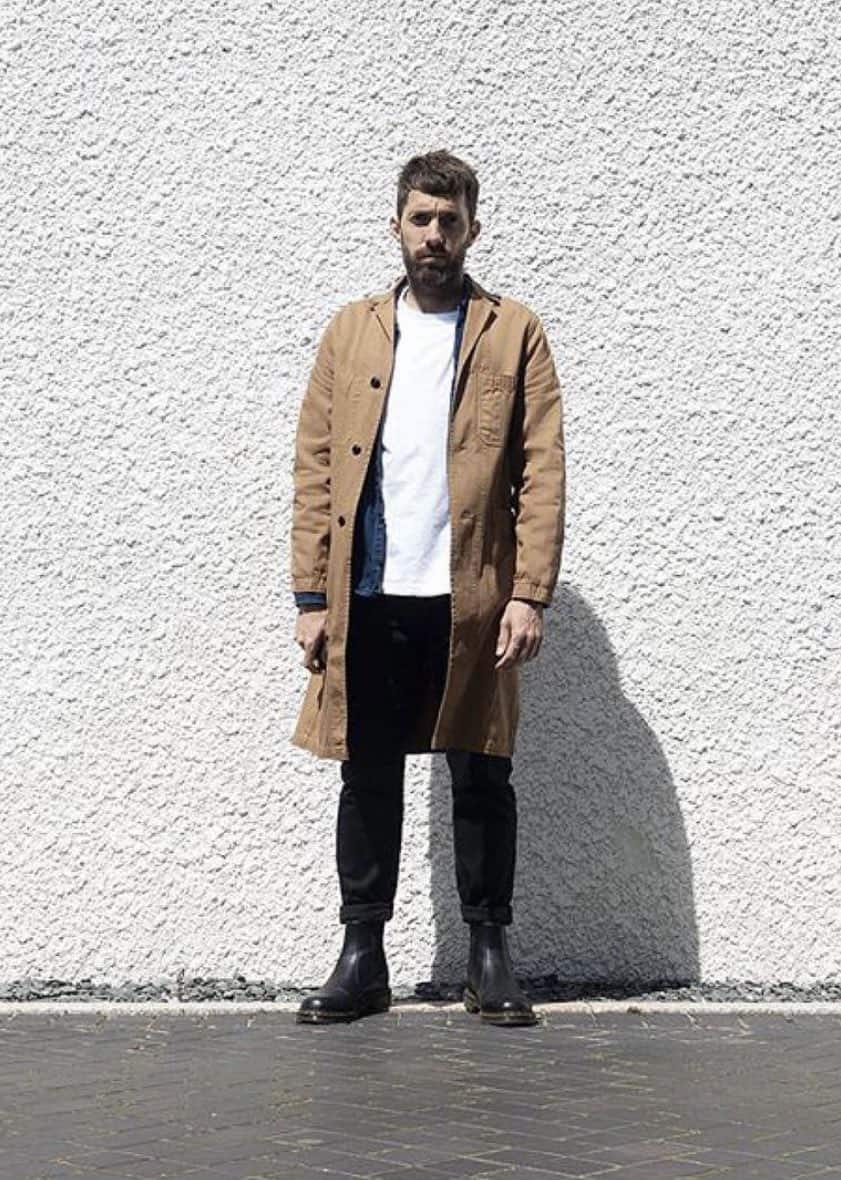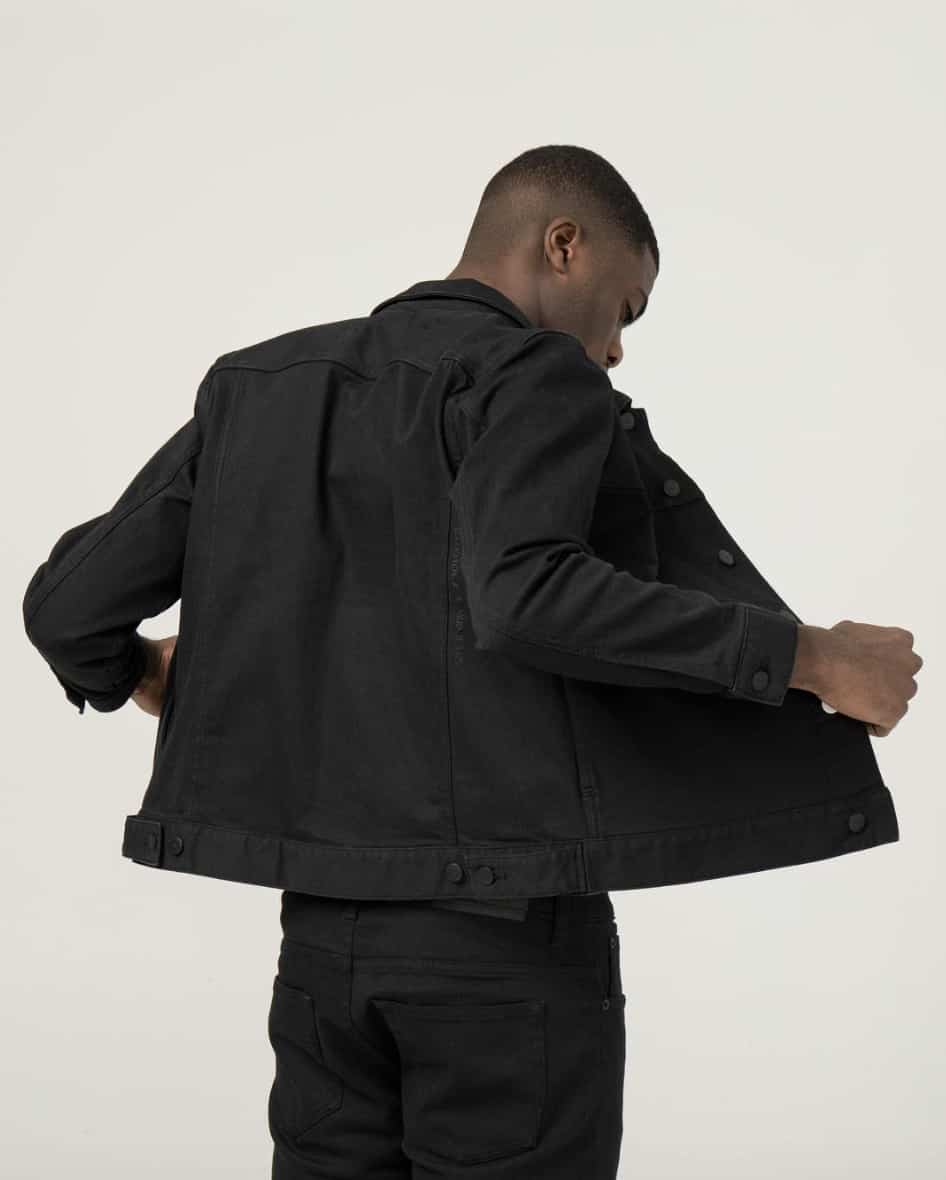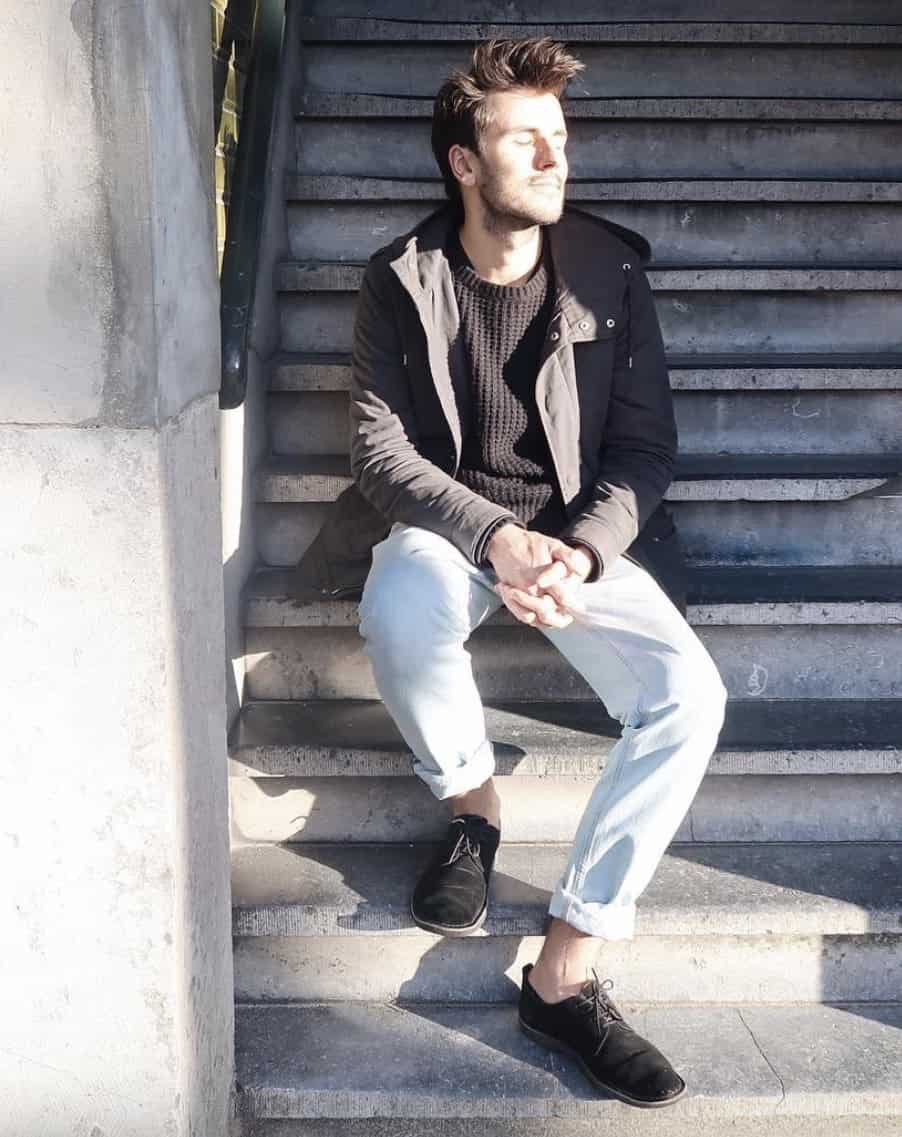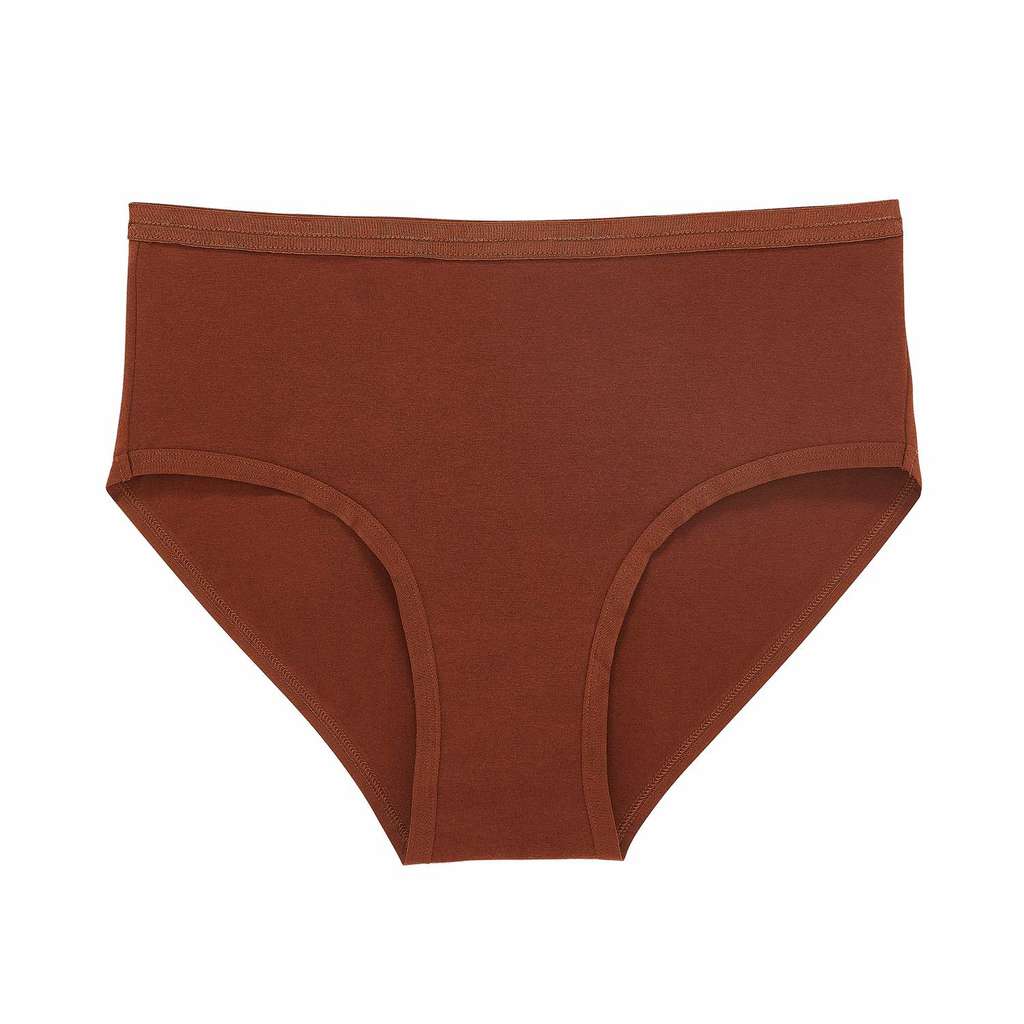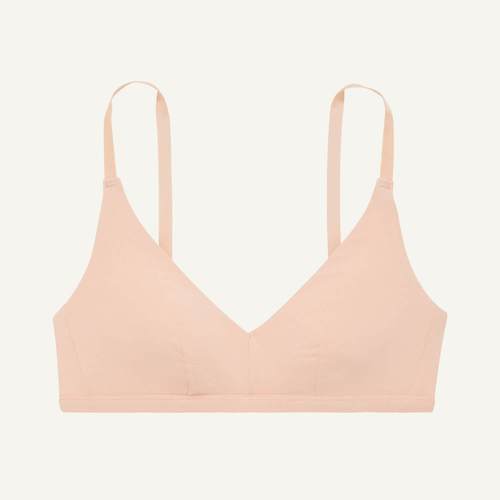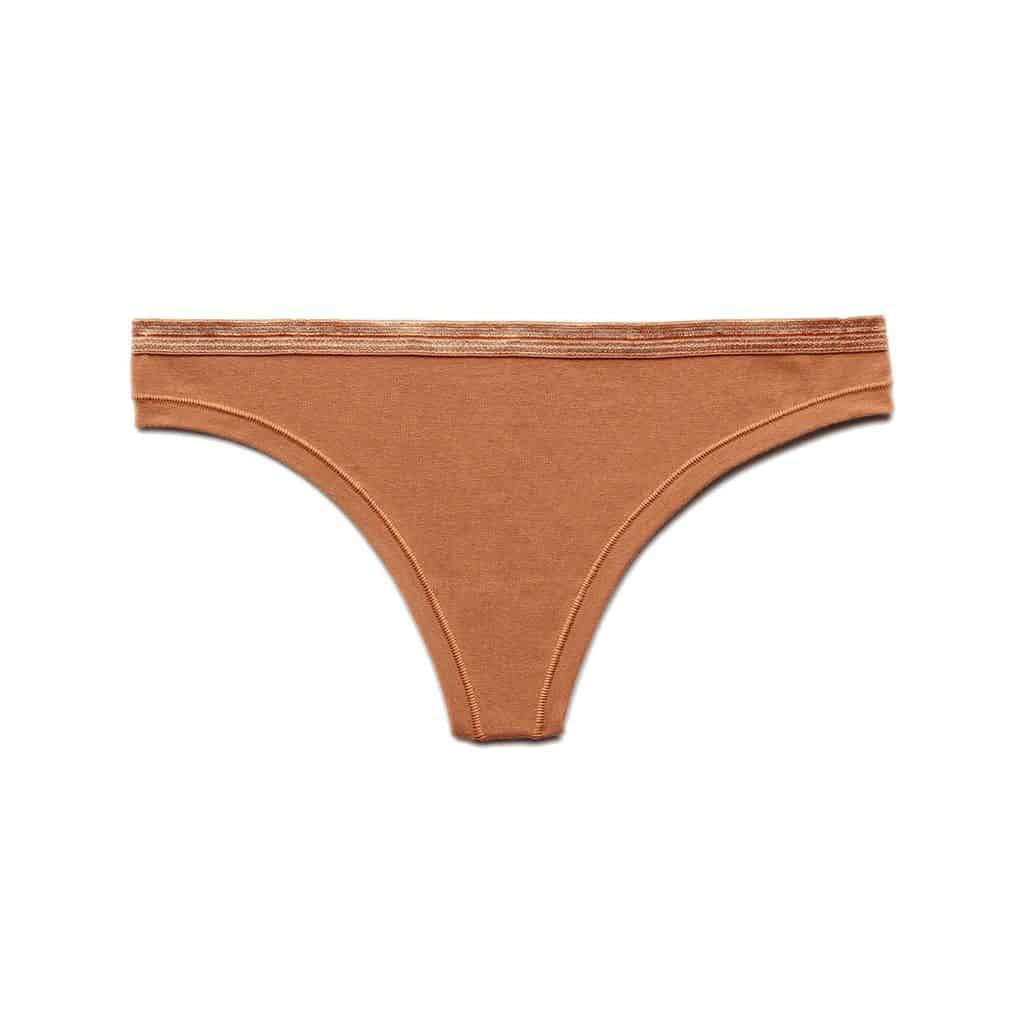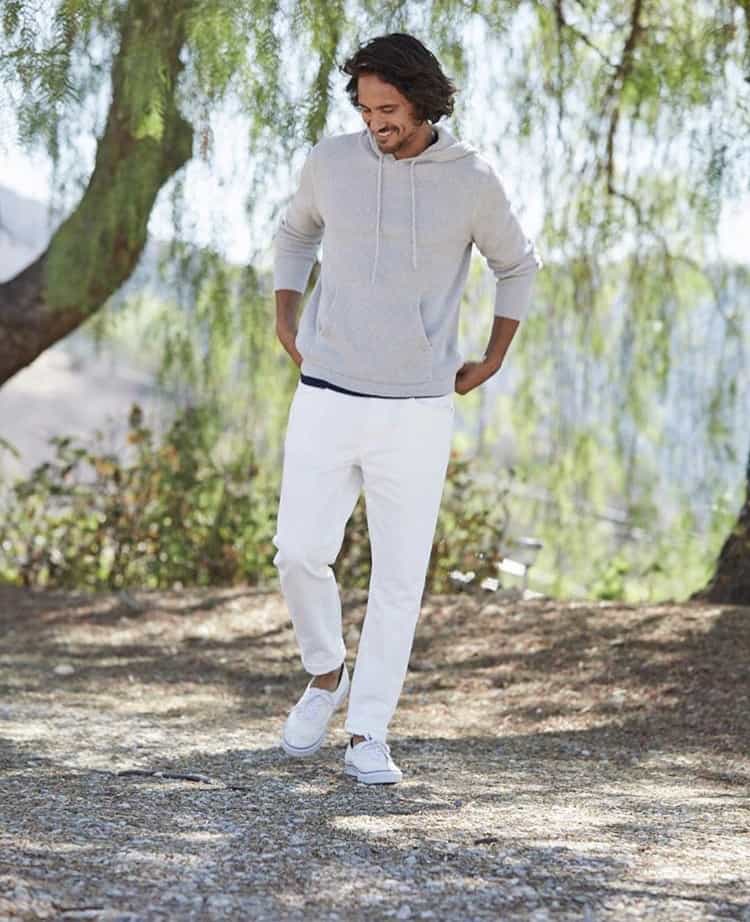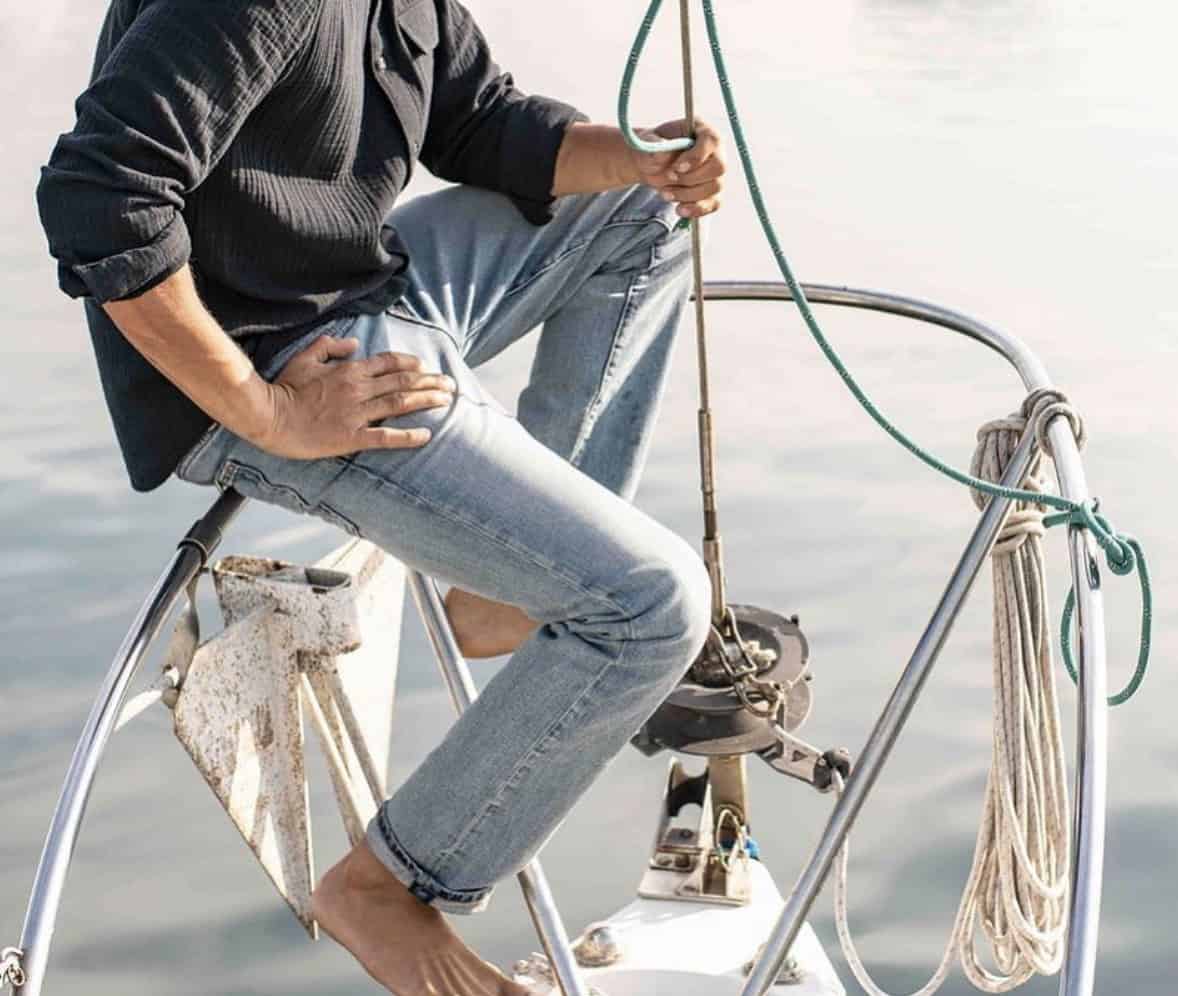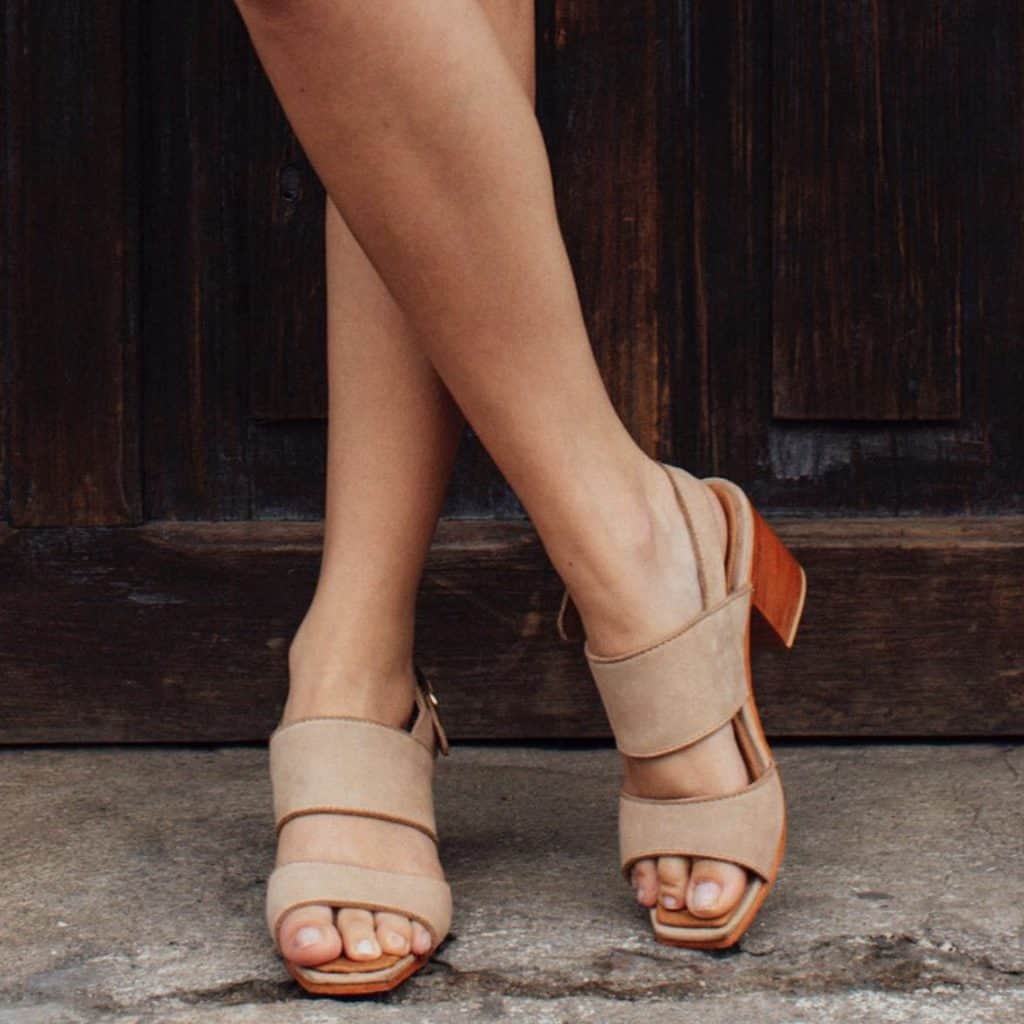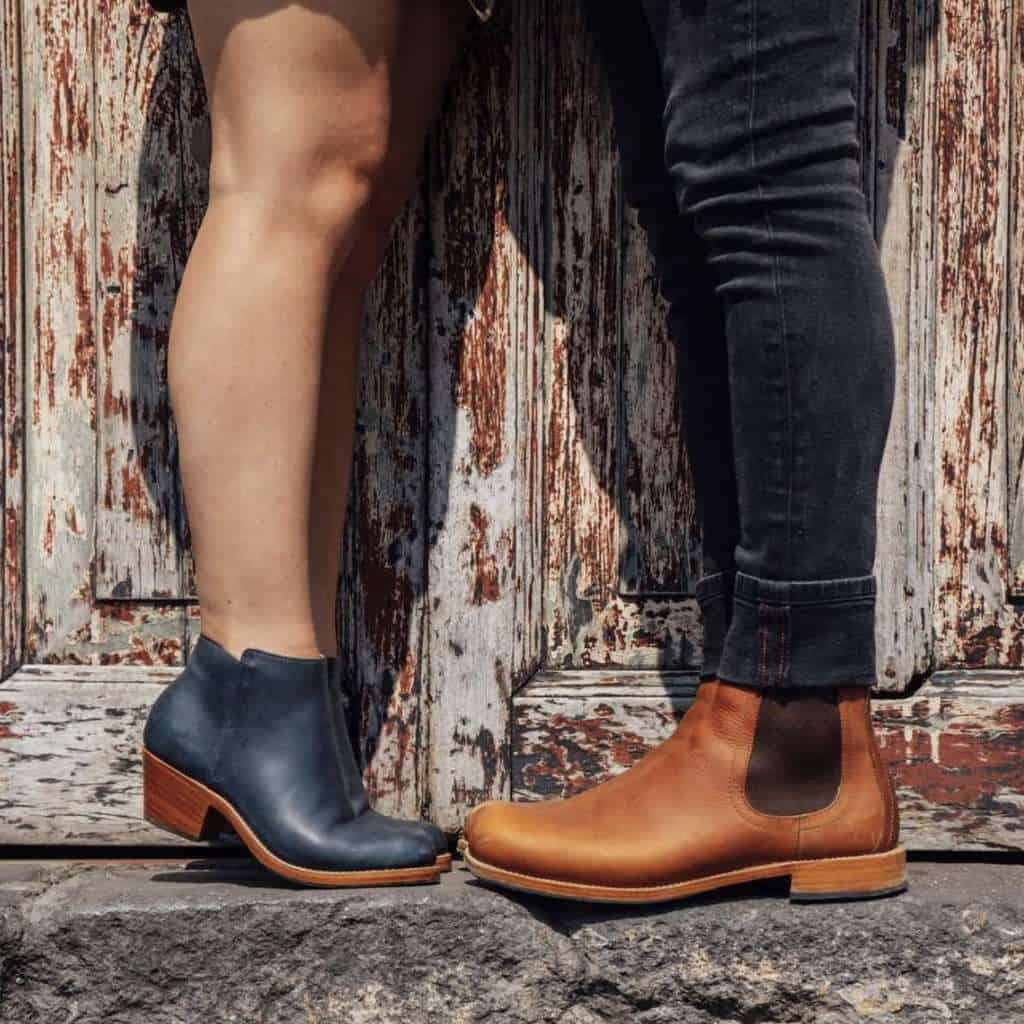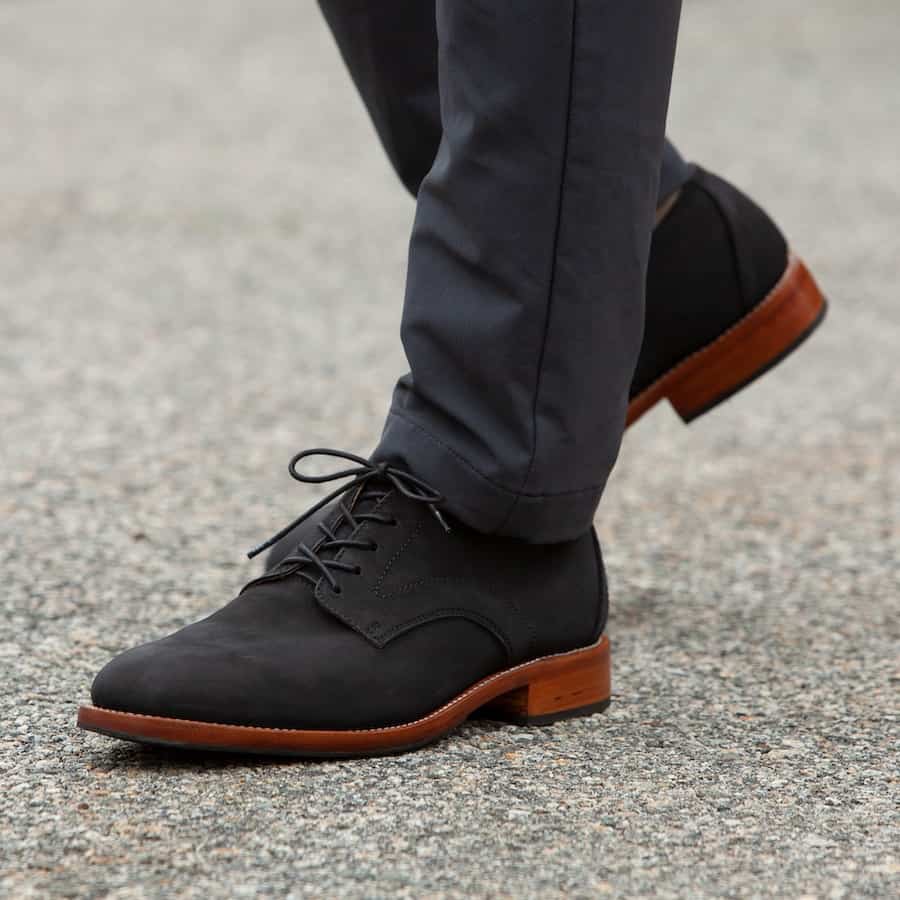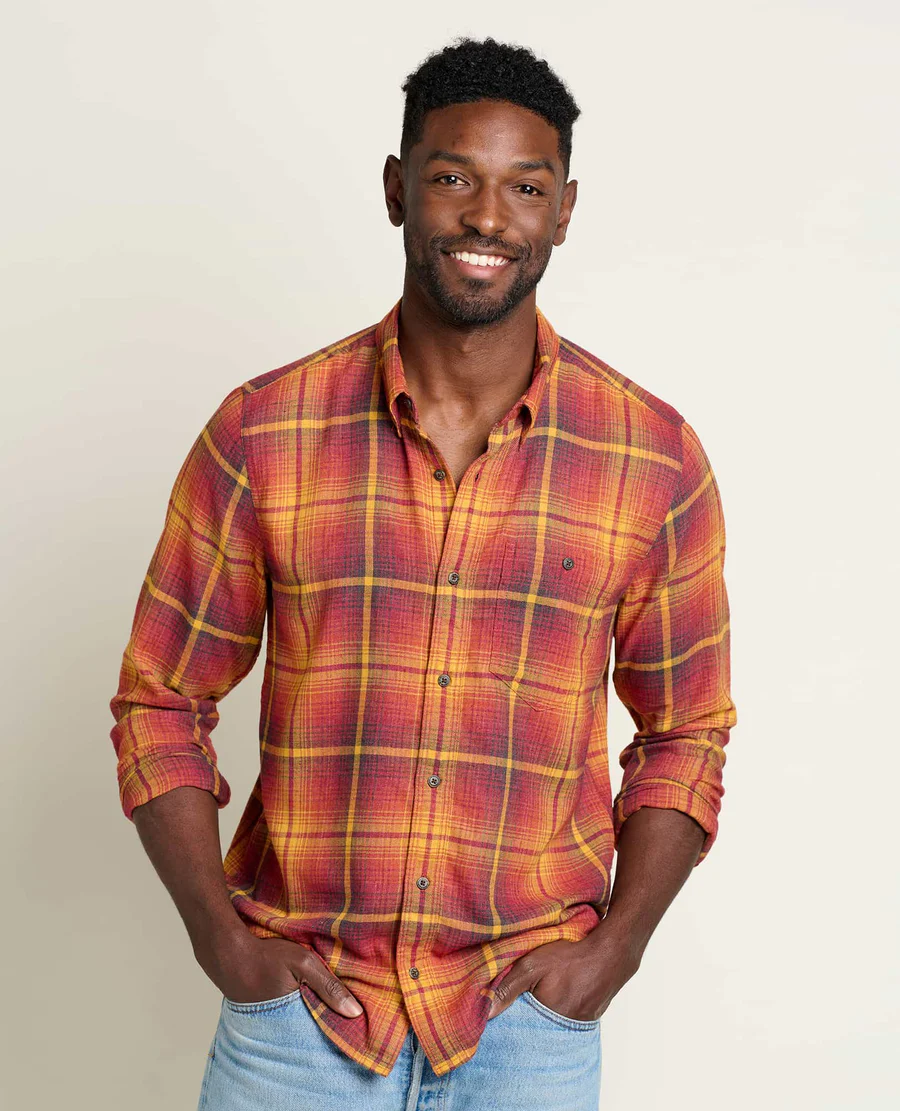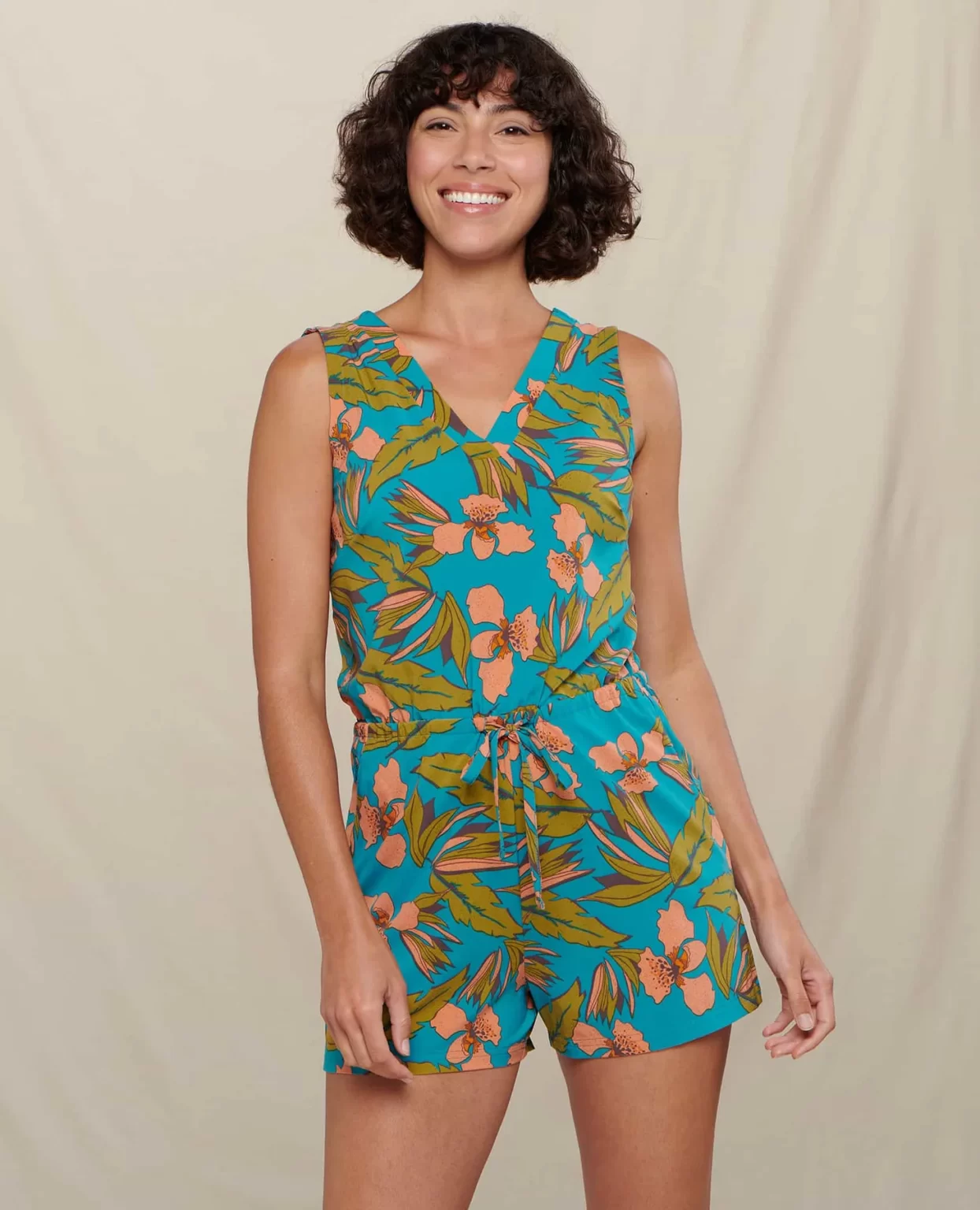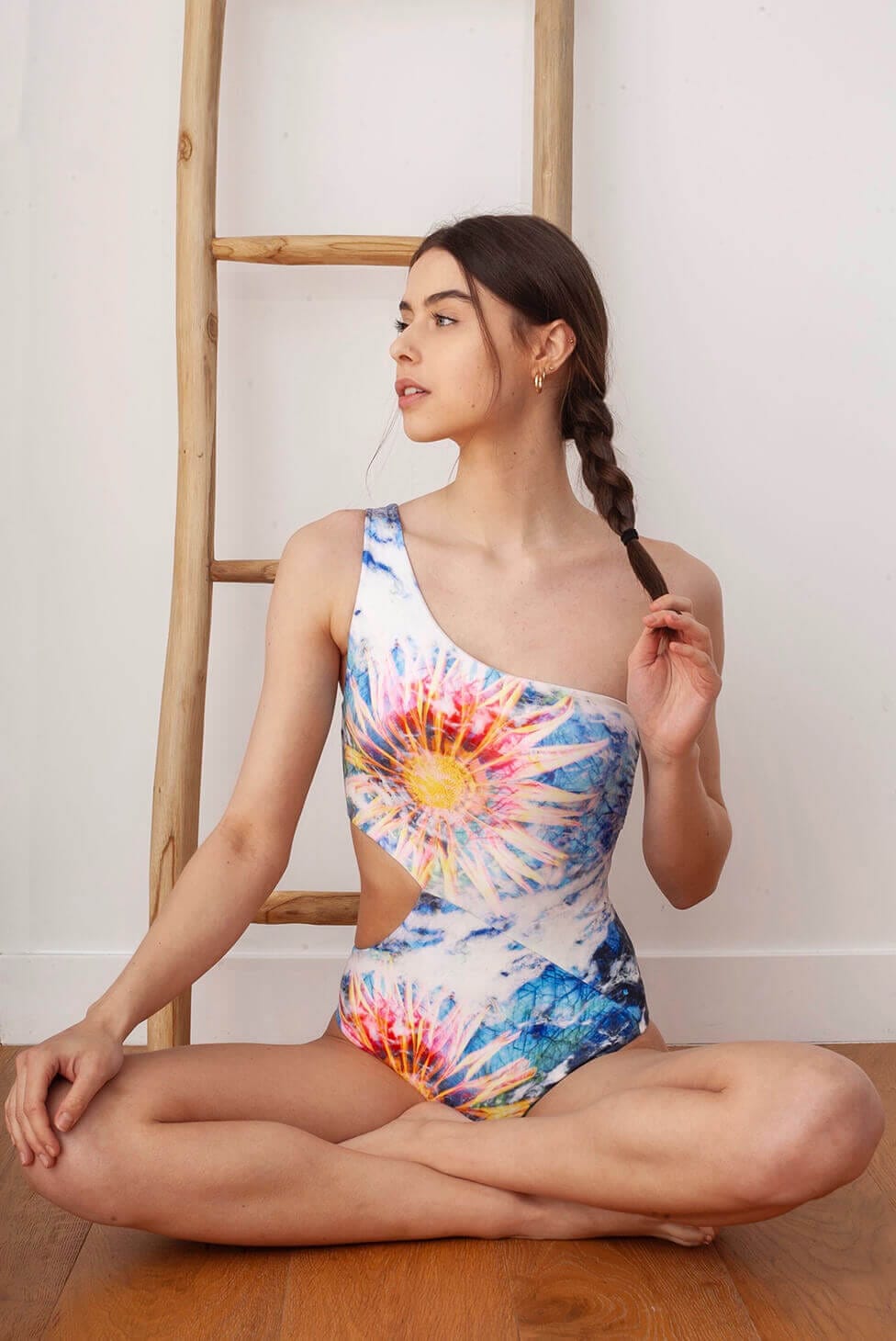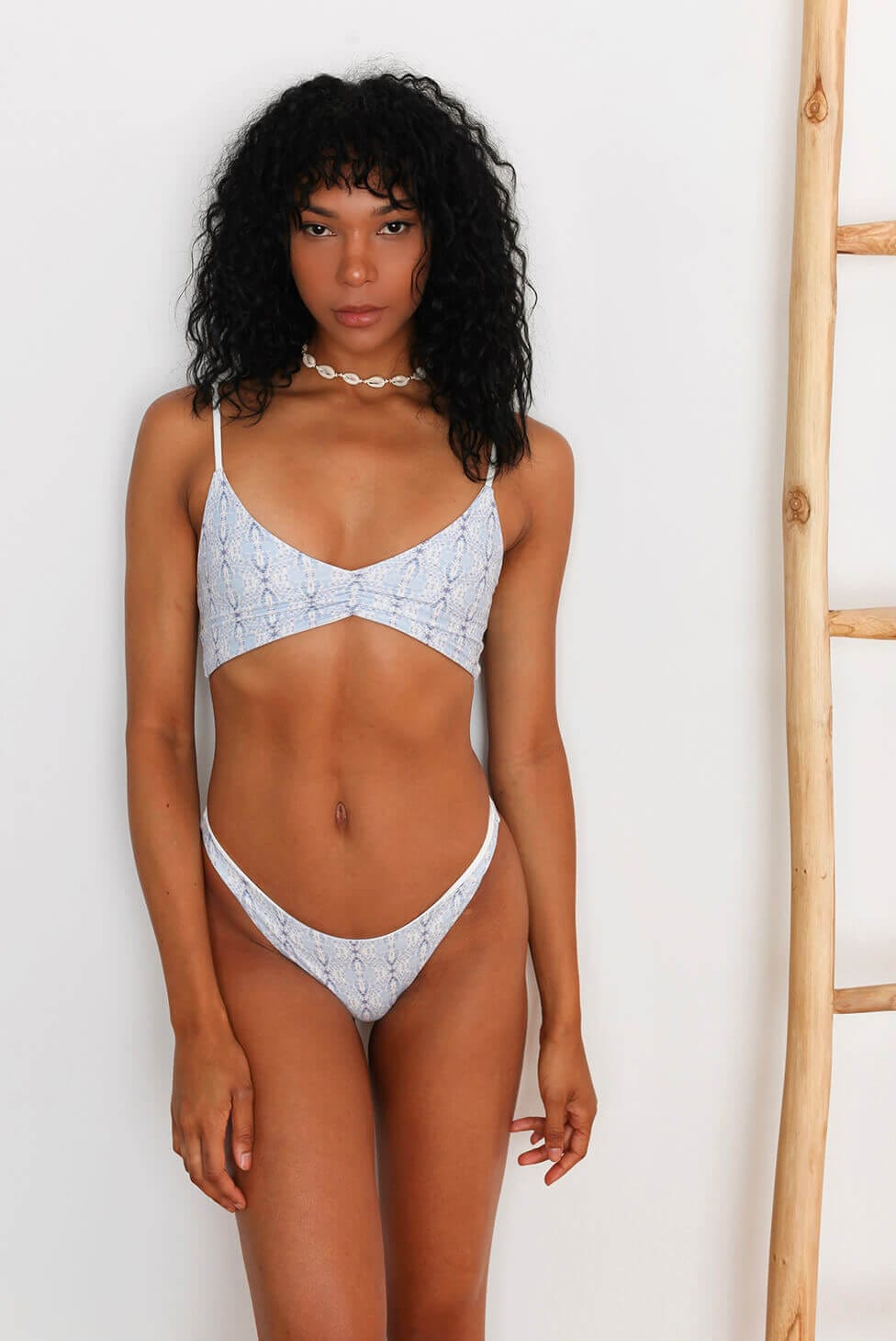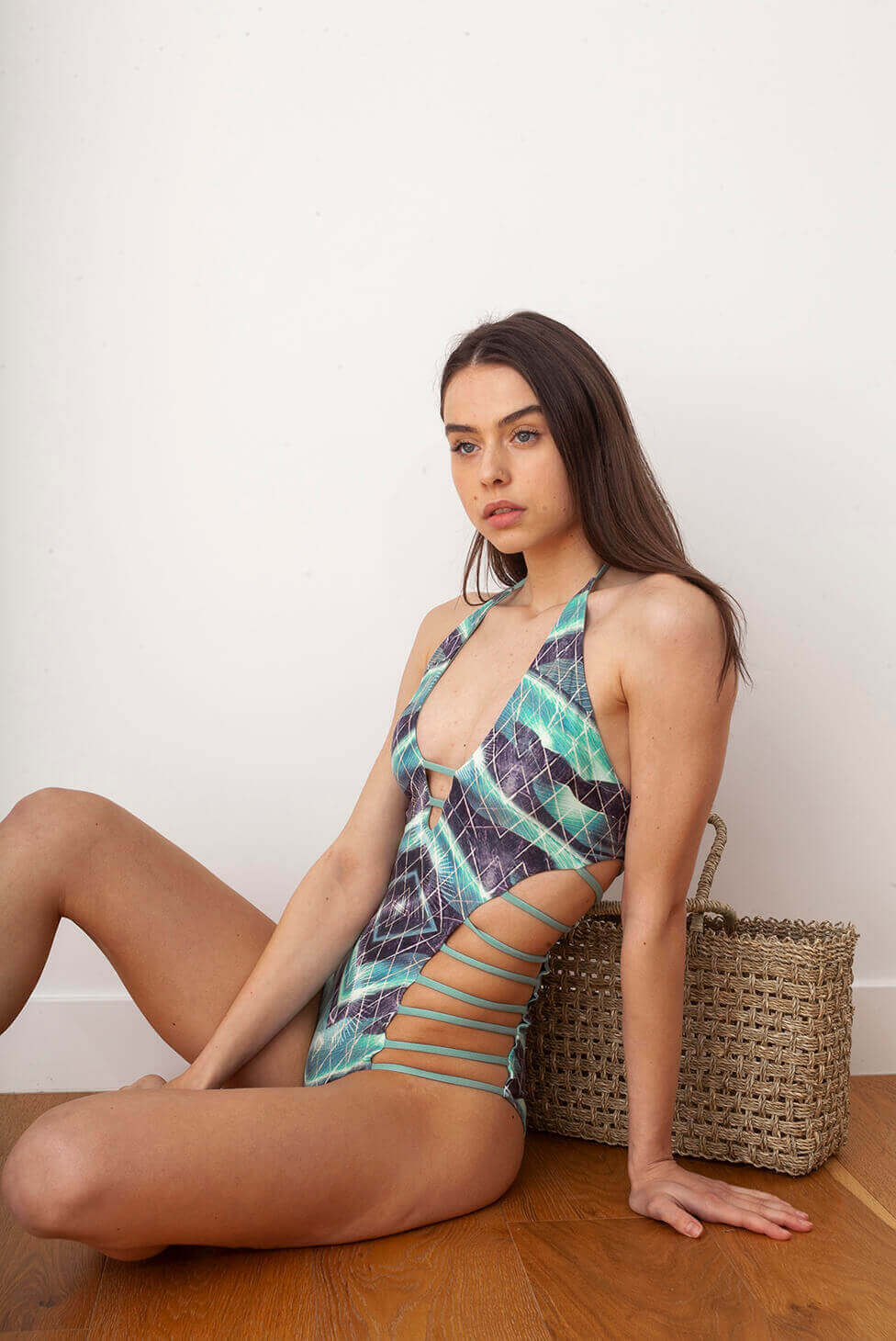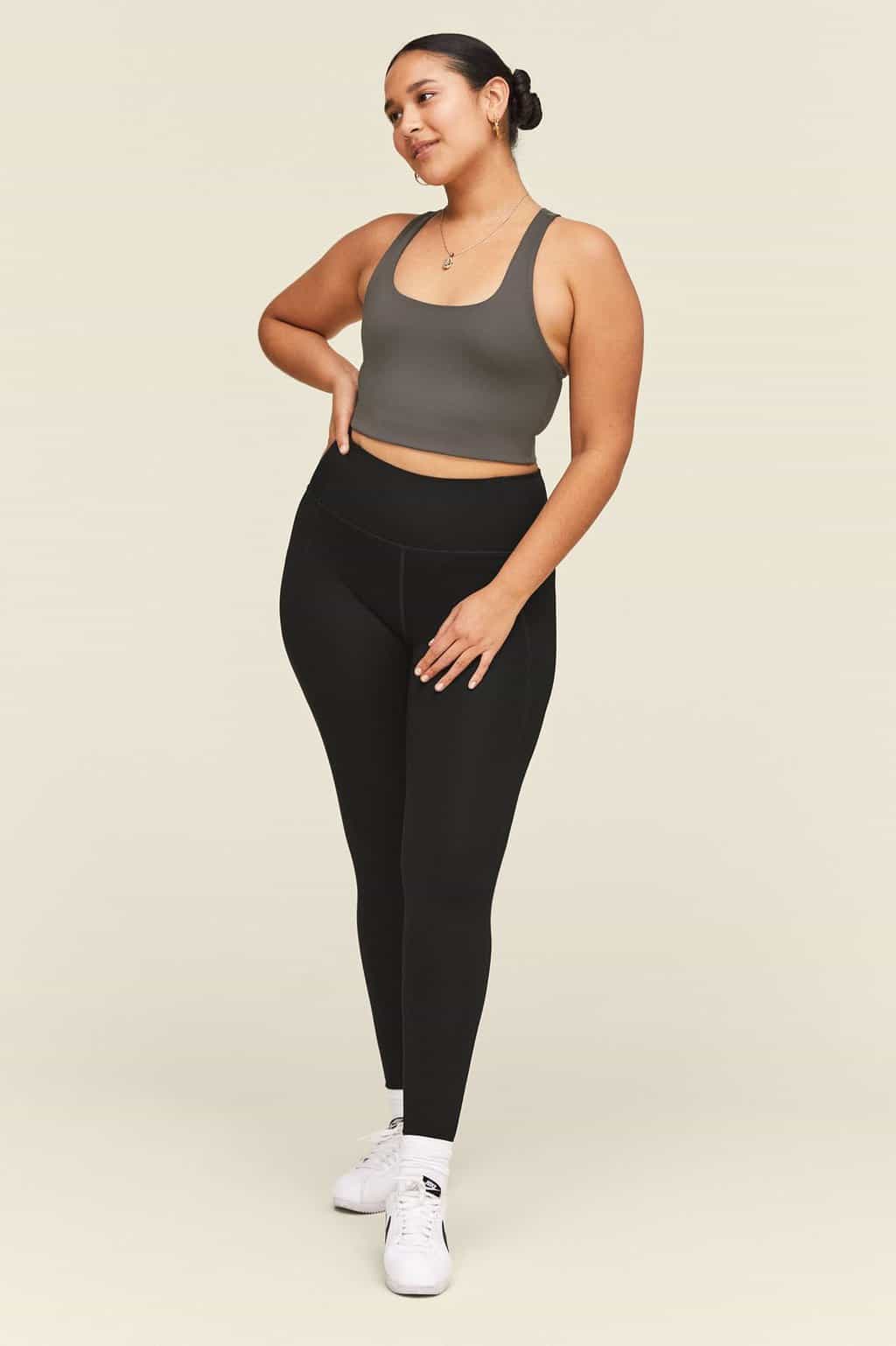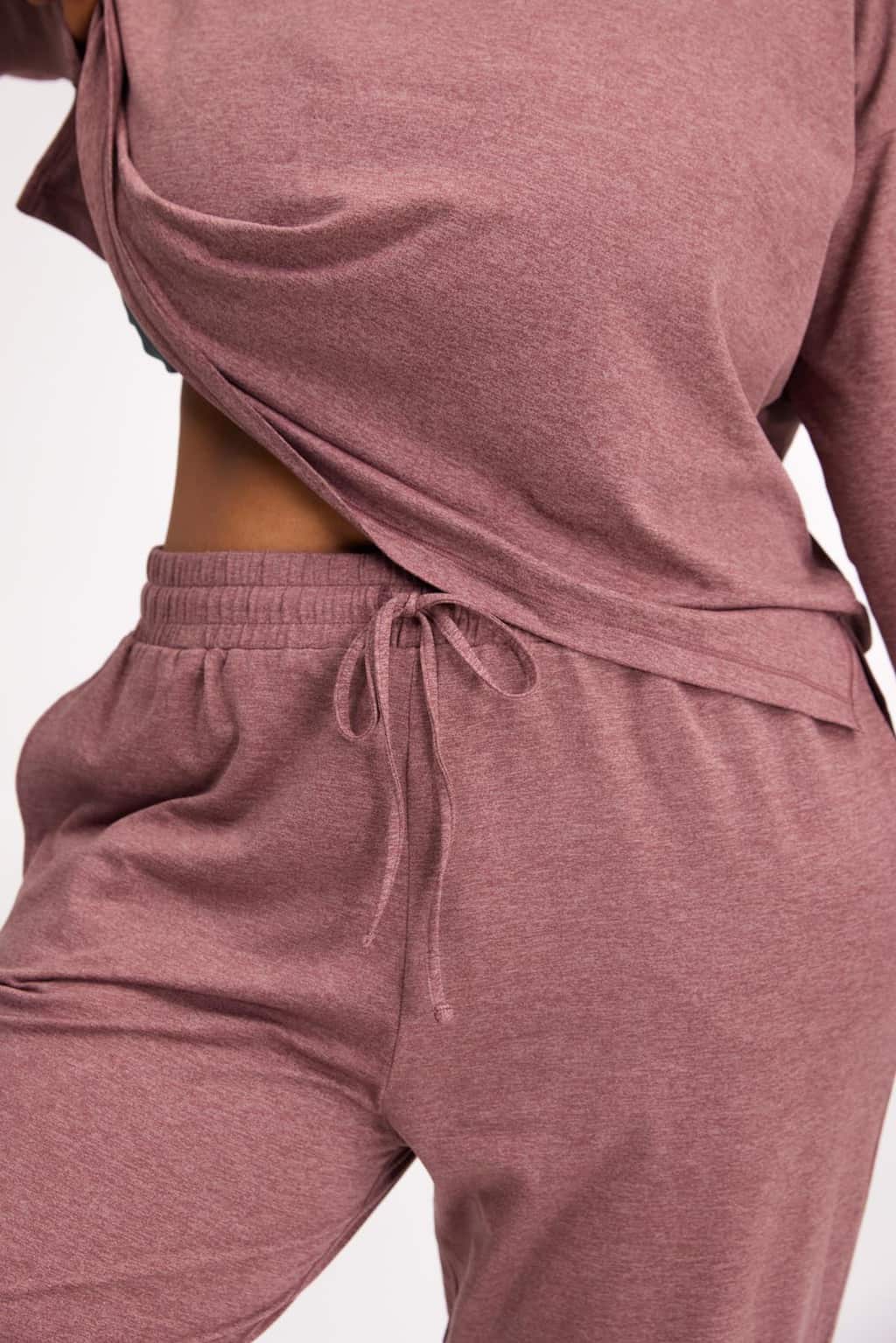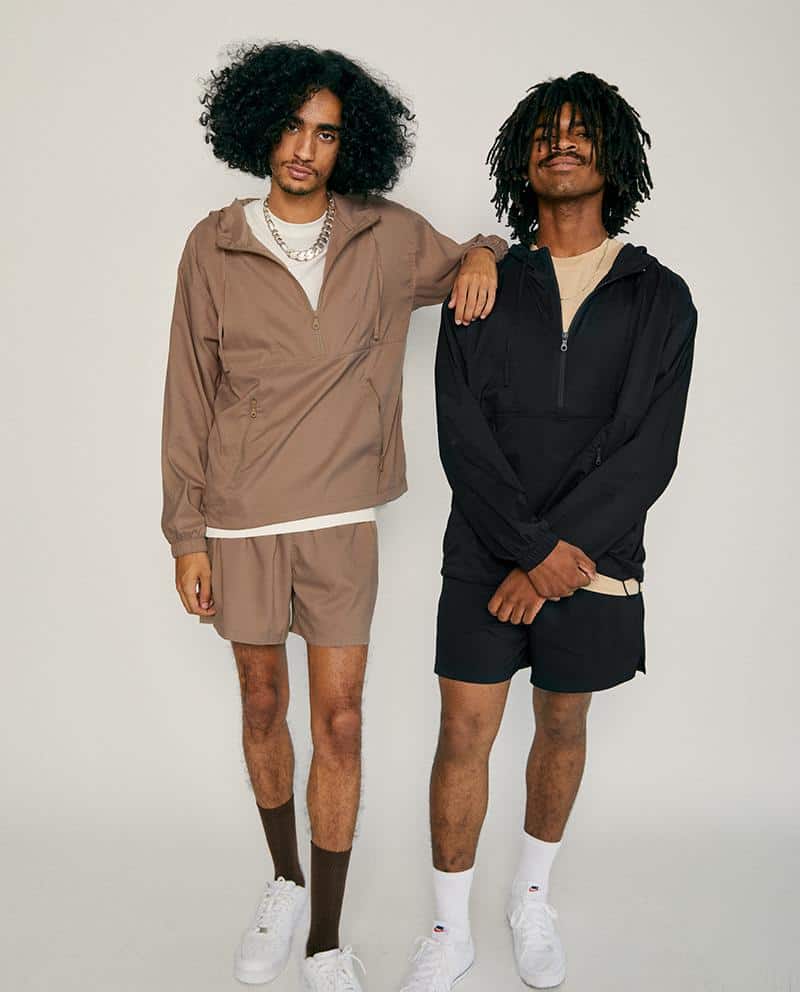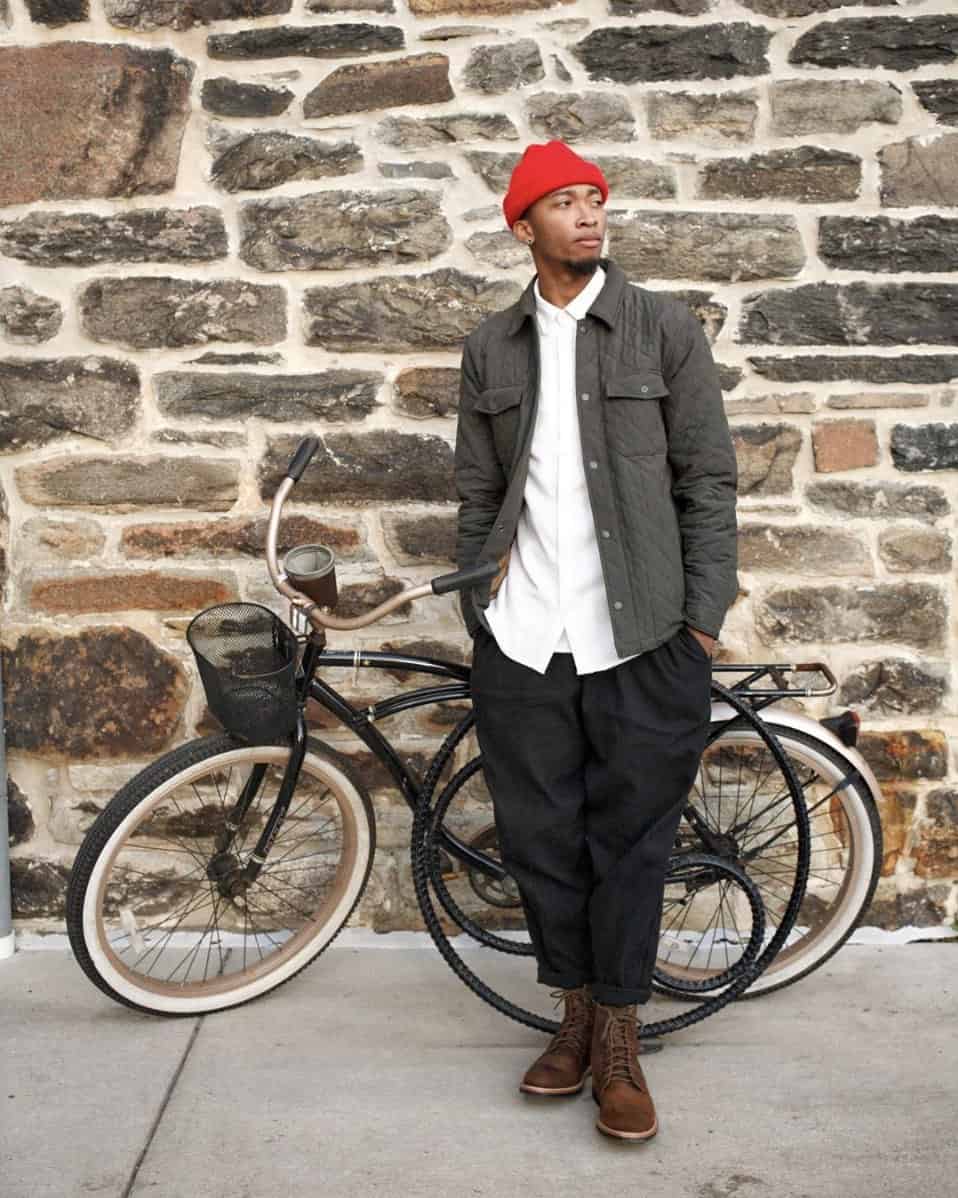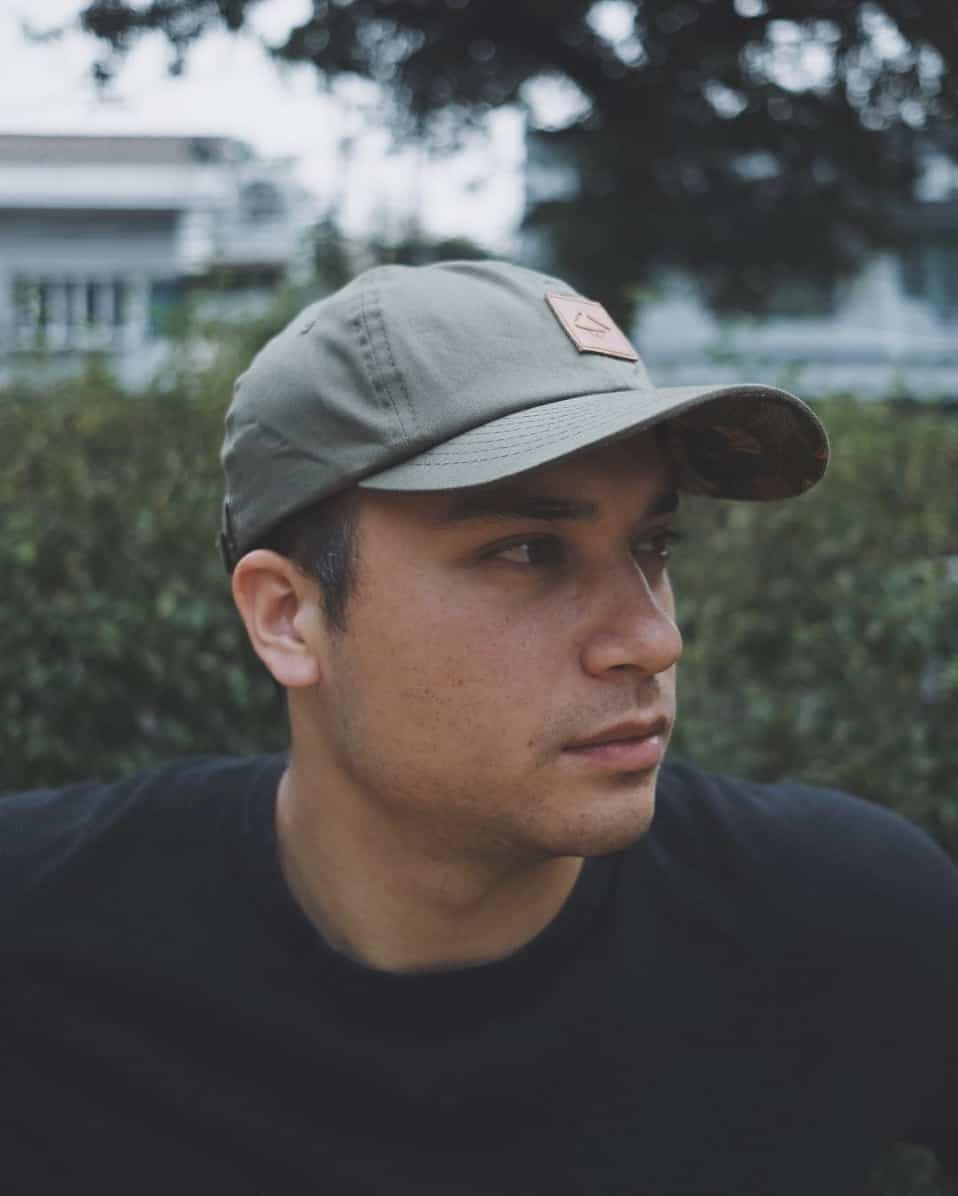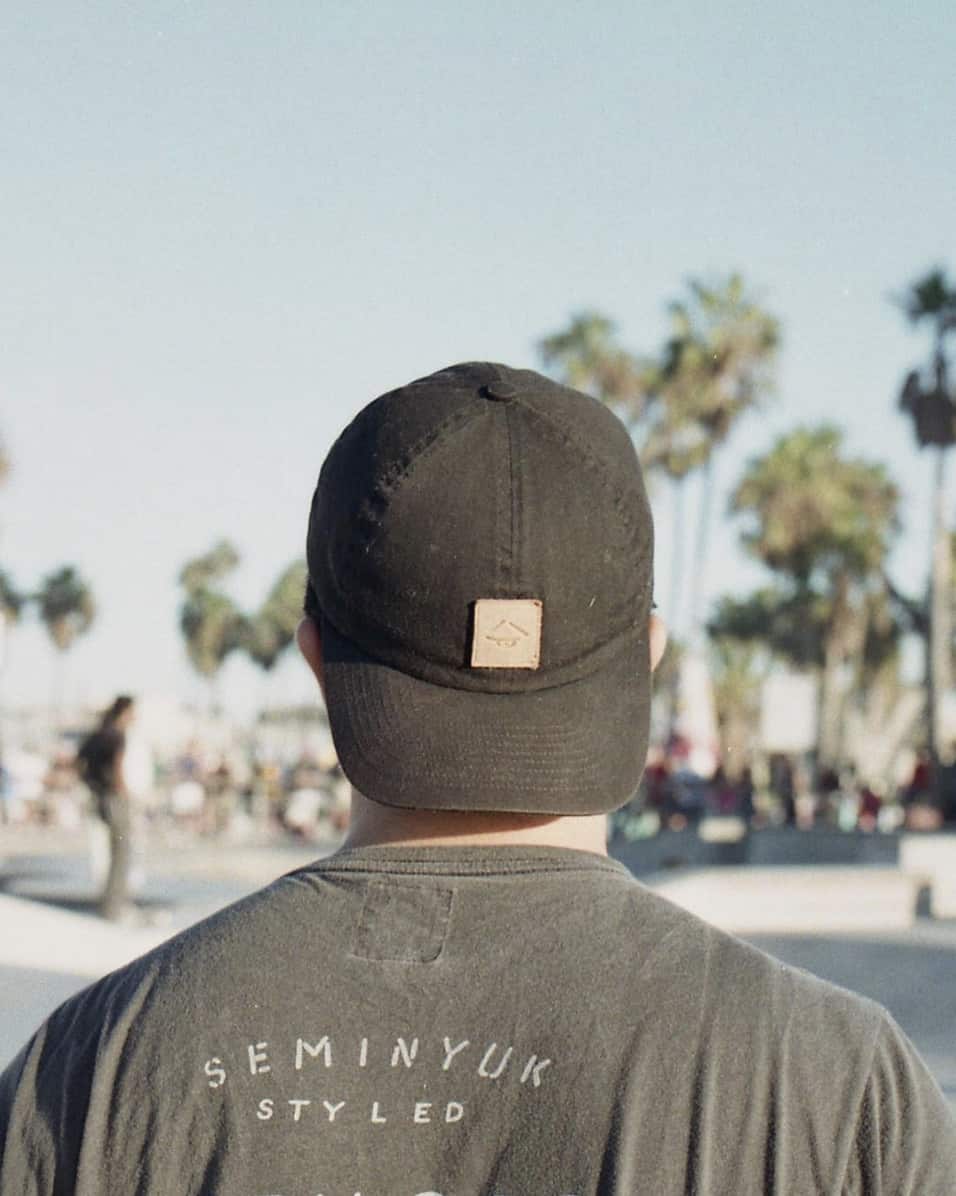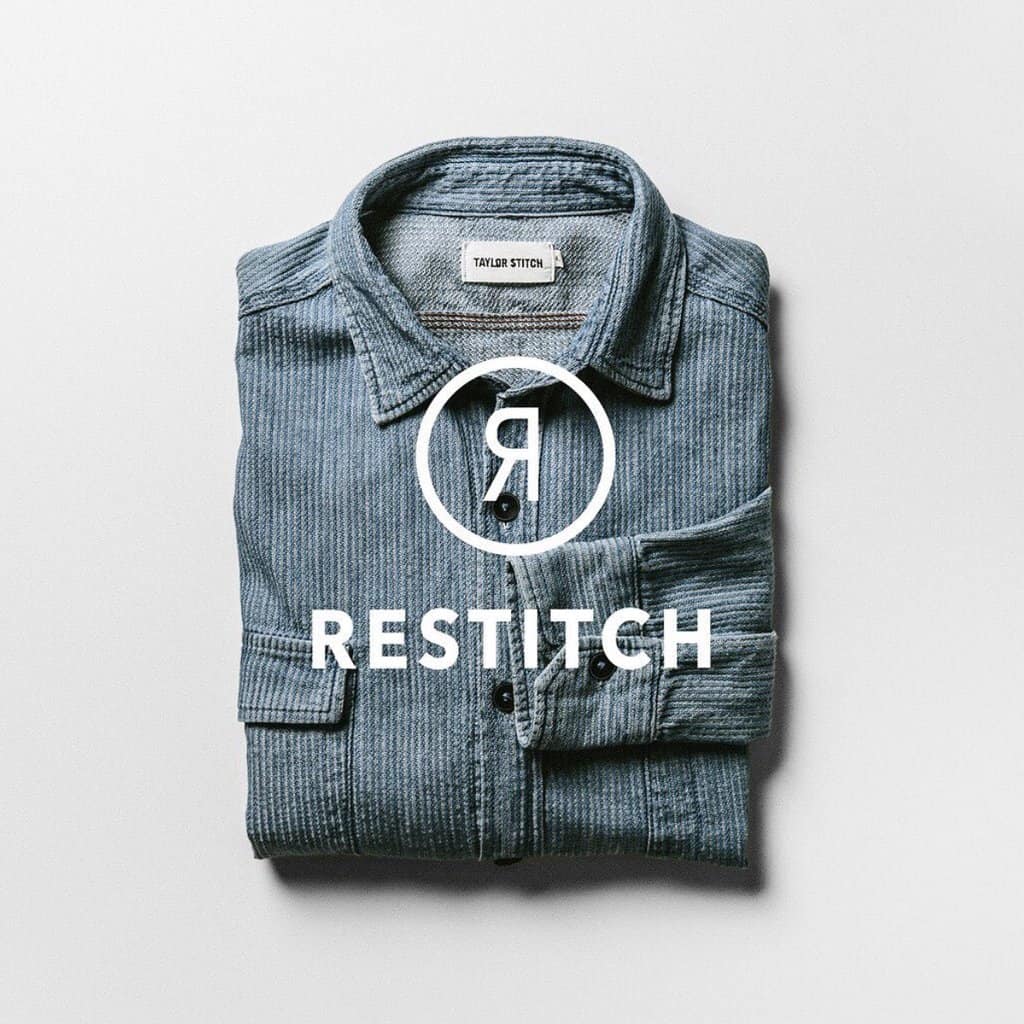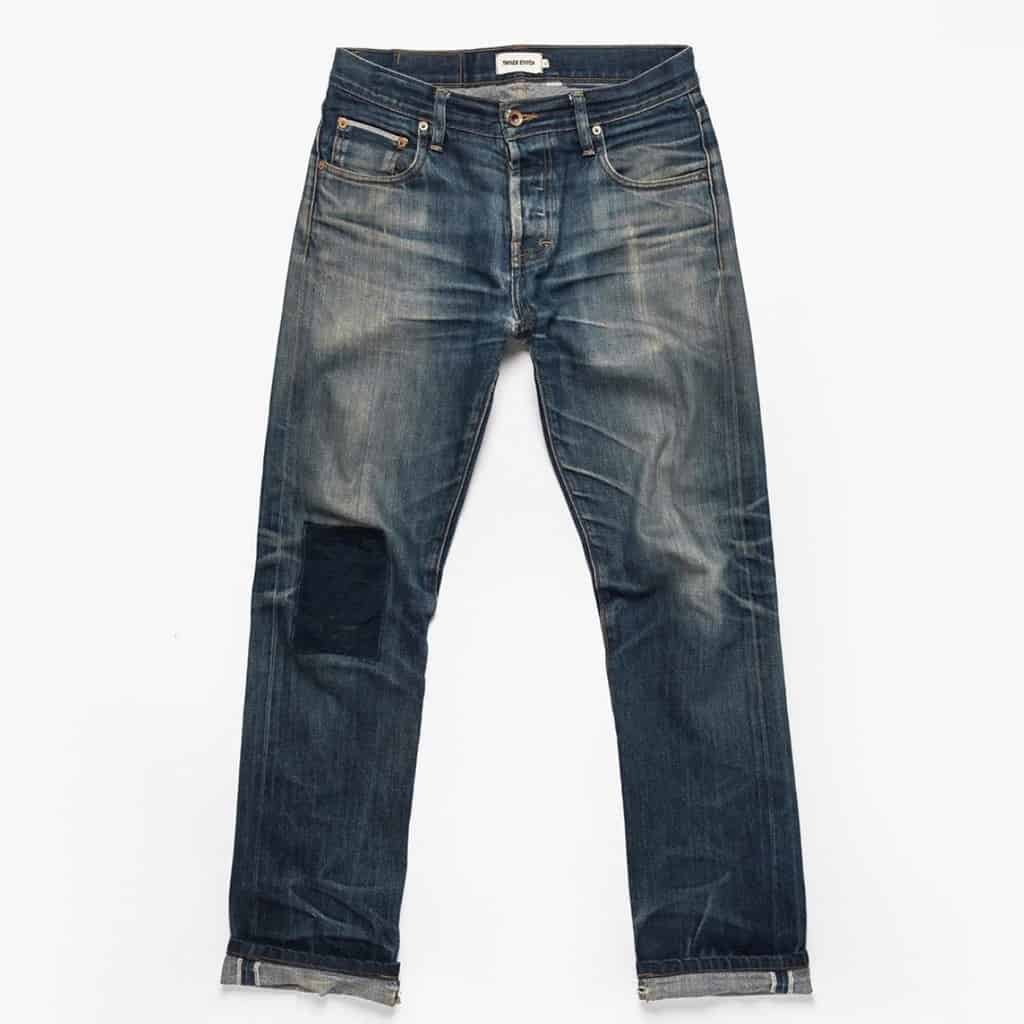After World War II, America slowly became a consumerist, disposable society. As innovation raced forward, we didn’t slow down to think about all this “stuff” we were sending to the landfill.
Today, with environmental problems and resource scarcity looming on the horizon, the call for products designed never to go to landfill is louder than ever. The answer to that call is cradle to cradle design.
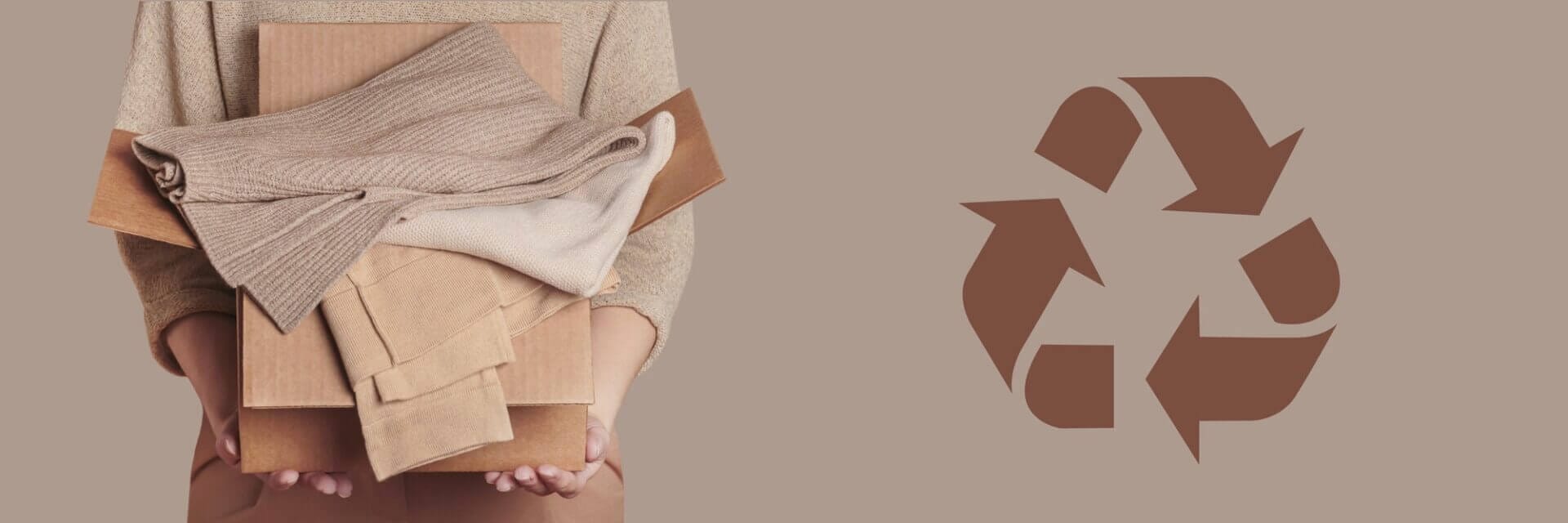
What is Circularity?
Cradle to cradle design, also referred to as circularity, is designing products to stay in use, and stay out of the landfill. This means designing products in accordance with nature from the very beginning, so that they can be reused, composted, or recycled at the end of its life, greatly reducing the environmental impact.
Today, most products are not designed with circularity in mind. In fact, many products are intentionally designed to have shorter lifespans so that you will purchase them more often.
The fashion industry is no stranger to this issue. Look no further than fast fashion, which has dramatically increased both the manufacturing and the disposal of clothing over the last 20 years.
Today, the average American sends about 81 pounds of clothing and shoes to the landfill each year. And in 2015, polyester production alone resulted in about 706 billion kilograms of greenhouse gases.
What is Circular Fashion?
The fashion industry needs circularity. Circular fashion is defined as:
“clothes, shoes or accessories that are designed, sourced, produced and provided with the intention to be used and circulate responsibly and effectively in society for as long as possible in their most valuable form, and hereafter return safely to the biosphere when no longer of human use.”
– Dr. Anna Brismar
For the purposes of this article, circularity will be defined as the implementation of programs that reduce, reuse, and design clothes with the end of life in mind. This means brands that take back and repair or recycle their customers well-loved garments. It also means brands that are working to “close the loophole” of consumerism.
It’s worth noting that circularity in fashion, much like sustainability, is a noble goal that no brand is fully achieving. However, many brands have impressive circularity initiatives that are paving the way for us to get there.
15 Emerging Circular Fashion Brands
Here are 15 ethical clothing brands that are leading the way and embracing different aspects of circularity. We’ve labeled almost half (7) of the brands as circular fashion pioneers, meaning these brands have gone a bit further in closing the loop.
1) Circular Fashion Pioneers: Thousand Fell
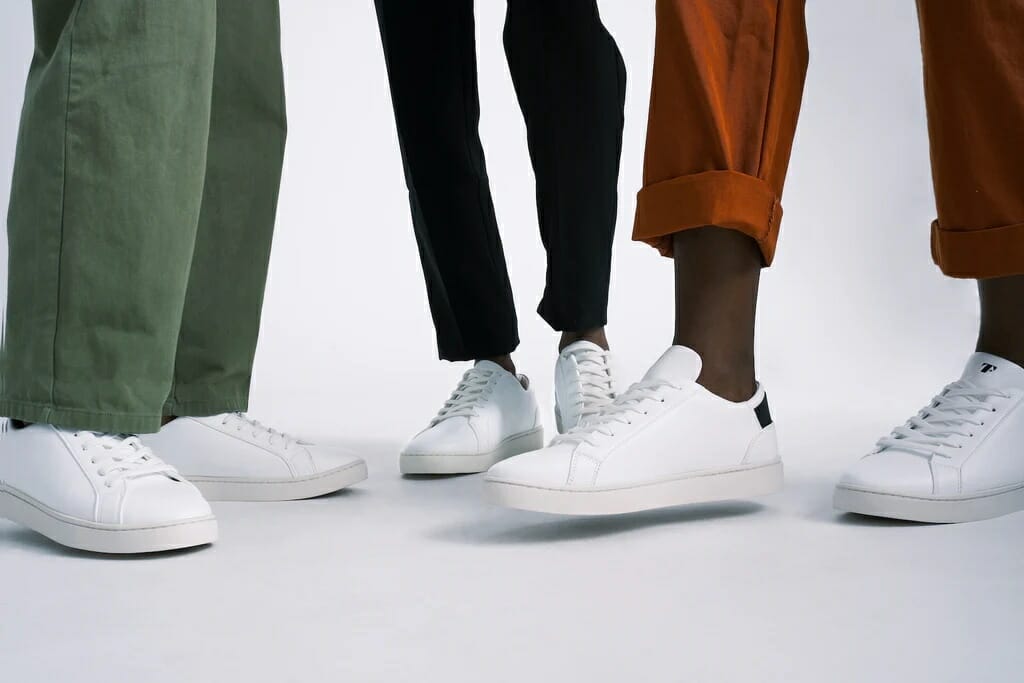
Thousand Fell is one of the few brands that has accomplished a fully circular business model. They sell you the shoes, you return them when they wear out, and they refurbish them or recycle them into raw materials to make new shoes.
One of the challenges with circular models is that they depend on the consumer returning the goods. If the customer doesn’t return them, they don’t get recycled. Thousand Fell addresses this risk with their $20 recycling deposit and $20 off your next pair of shoes when you send back your old ones. That’s a lot of incentive to keep a good thing going!
Thousand Fell sneakers are also stylish, comfy, vegan, and made with sustainable materials.
2) Circular Fashion Pioneers: Tentree
Tentree is another closed loop pioneer with a model allowing for full circularity. Through a partnership with SuperCircle, the same folks that power Thousand Fell’s circularity, Tentree lets you send back your used Tentree clothes for free and earn store credit in the process.
They take back your old Tentree clothes in any condition, as long as it’s washed and clean. Then if it’s in good enough condition they resell it and if it’s not they recycle it. Either way nothing goes to waste.
Oh, and by the way, we haven’t even mentioned all of the other reasons why Tentree is one of our Certified brands and a great brand to support.
3) Circular Fashion Pioneers: Nudie Jeans | Re-Use
Nudie Jeans offers free repairs for life. If that wasn’t enough, their Re-Use program takes in used Nudie jeans, repairs them, and resells them. They emphasize that all jeans purchased from Re-Use are one-of-a-kind.
If you’re a fan of faded jeans this is definitely the brand for you, but you have to act fast because each drop of Re-Use jeans tends to sell out. Each pair of jeans tells its own story through the unique faded tones and shades. Plus, if you decide that you’d like to turn in your old Nudie Jeans, you get 20% off your next purchase; winning for the environment and your wallet!
4) Circular Fashion Pioneers: Patagonia | Worn Wear
From the beginning, Patagonia has worked to limit their environmental impact by promoting buying only what you need. In addition to all their resources to promote a more sustainable lifestyle, they also work to reduce textile waste by using recycled materials and advocating to repair clothes rather than sending them to the landfill.
Patagonia’s Worn Wear program puts their money where their mouth is. Go to any of Worn Wear’s events to get your Patagonia gear repaired for free. You can also turn in your old Patagonia garments at any store location, or via mail, and get yourself some store credit in return.
Worn Wear then repairs those used garments and resells them online, giving you a chance to be sustainable and buy better than new. Worn Wear also shares in depth tips and instructions on how to repair your own garments right on their website.
5) Circular Fashion Pioneers: MUD Jeans
MUD Jeans works to reduce their impact by not only limiting water and CO2 emissions in the production of their jeans, but they have also saved over 18,000 pairs of jeans from recycling and incineration just in 2022.
With the help of their Recovertex factory in Spain, MUD Jeans makes up to 40% of their fabrics from recycled post-consumer denim! Their ultimate goal is to make all MUD jeans from 100% recycled denim.
In addition to all of this, MUD Jeans offers free repairs in Belgium, Germany, & Netherlands, and offers true circularity with their jean leasing program. The leasing program allows you to rent jeans for a monthly fee, and when you’re done you can send them back or return them for another pair, and they’ll recycle your old ones. How cool is that?
6) Circular Fashion Pioneers: Astor & Orion
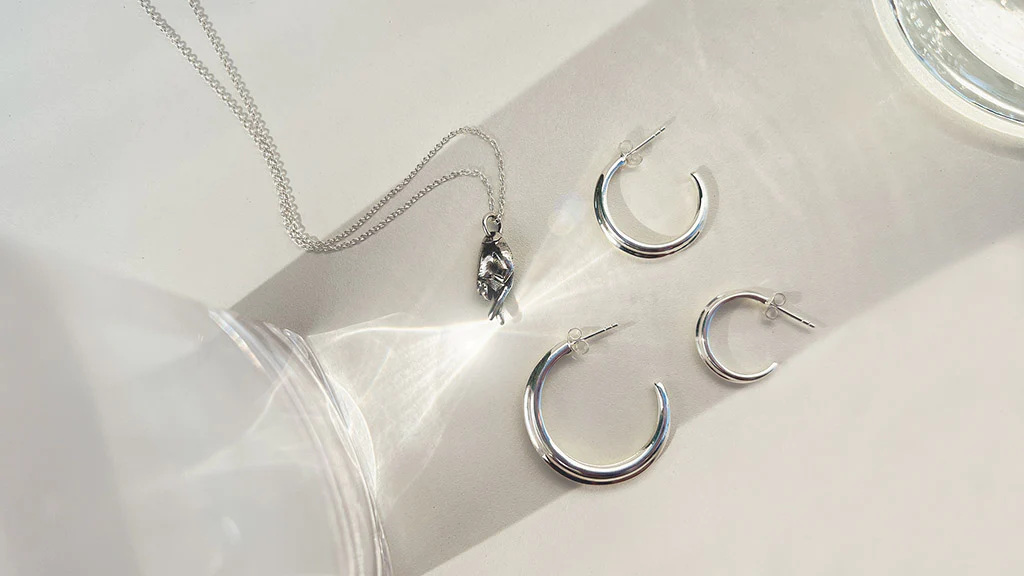
You don’t see many circular jewelry brands and that’s what makes Astor & Orion so unique. All Astor & Orion jewelry is designed to be circular.
This means it’s ready to be recycled and turned into something new, without any added pieces or materials that would make the process more challenging. Their jewelry is also made with recycled metals and they have a program to take back your unwanted jewelry, recycle it, and offer you store credit.
With jewelry and metals you may have a local option available for you to recycle it, but if not it’s nice to know they have you covered.
7) Circular Fashion Pioneers: Subset
If you’ve ever tried to recycle old underwear and socks, then you know it’s nearly impossible. Most places that take your old clothes explicitly say they won’t take your old underwear. Enter: Subset.
Subset partners with SuperCircle to take back and recycle your used underwear and socks from any brand, no matter the condition. Your old socks and underwear then get repurposed into things like insulation, carpet padding, and furniture batting.
You might be thinking: wait, isn’t that downcycling? And you would be correct. This isn’t perfect circularity in the sense that the underwear isn’t turned into new underwear. However, considering that nearly all used underwear and socks currently end up in the landfill, having them downcycled and repurposed is a big step in the right direction, and a much more positive impact.
8) Outerknown
You know that Outerknown stands for people and planet, but did you also know that Outerknown is so confident in the durability of their S.E.A. jeans that they include a lifetime warranty? This warranty allows you to send back your old jeans and get them repaired for free.
If your jeans are beyond repair, you can still send them back and they’ll provide you with a fresh new pair. After receiving your old jeans, Outerknown will send them to the Renewal Workshop where they will either get repaired for a chance at a second life, or they’ll be upcycled into something like housing insulation.
In addition to this, Outerknown also sells second hand Outerknown gear on their website under the tab Outerworn. Got used Outerknown clothes you want to resell? You can list them for free and earn store credit when they sell.
9) Adelante Made-to-Order
What does made-to-order have to do with circularity? Well, when you consider that nearly 30% of new fashion is wasted due to overproduction, made-to-order dramatically reduces that number and eliminates waste.
If the goal of circularity is to reduce waste and keep things out of the landfill, addressing waste on the front end (production) is important too! Adelante embraces circularity both with their made to order shoes, and with their high quality products.
The typical shoe is designed to be worn and later tossed. Adelante’s shoes are designed to last, and when the bottoms wear out, they’re designed to be re-soled. Instead of tossing then, you can simply have them repaired and get years more life out of them.
With both of these initiatives they’ve addressed different parts of circularity and helped keep shoes in use and out of the landfill!
10) Toad&Co
Not unlike Outerknown, Toad&Co also has a resale program called ToadAgain. Through ToadAgain you can shop pre-loved Toad&Co clothes or if you have some to sell, you can do that too.
Like we mentioned, resale programs aren’t perfect circularity but if you imagine circularity like a circle, it’s another piece of the pie, moving closer to a complete circle. ToadAgain is one way an already great brand advances their sustainability.
11) Wolven
Keeping in good company, Wolven also has a resale program called Wolven Pre-Loved. Through their program you can earn 110% store credit for every item you sell and of course you can shop second hand Wolven clothes through the only official channel.
Wolven’s program is powered by Treet and you’ll notice several of our Certified brands have resale programs, including Outerknown, Toad&Co, and more.
12) Girlfriend Collective
Like their peers Wolven, Girlfriend Collective has a resale program too called Girlfriend to Girlfriend. You guessed it: you can shop pre loved Girlfriend gear or sell your used pieces.
But Girlfriend also goes one step further in circularity with their ReGirlfriend program. ReGirlfriend is for your used Girlfriend clothes that aren’t in good enough condition to resell, and instead should be recycled. Girlfriend takes these used clothes and recycles them into new clothes.
ReGirlfriend is easy to use: you pay $7 for a shipping label for each item, and you get $15 store credit for each item once they receive it. Note that ReGirlfriend is currently only available in the US.
13) Nisolo
Nisolo is “committed to working under a circular fashion model—a system that reuses and recirculates products and materials.” For example, their shoe reclamation program helps close the loophole on shoes going to the landfill.
Through that program Nisolo has collected over 5,000 pairs of shoes with the help of their partner Soles4Souls. Their easy to follow reclamation program lets you responsibly get rid of your no longer needed shoes and receive store credit in return. Soles4Souls takes care of the rest by using the old shoes for donation, to support global entrepreneurs, or by disposing of them sustainably.
14) Topiku
Incorporating circularity through the use of upcycled materials, Topiku is reinventing the hat industry. The brim of their hats is made from recycled HDPE plastic and other plastics from landfills. But they don’t stop there.
They use scraps from various leather producing companies to make the straps for their hats, upcycled organic cotton for the batik, and the buttons on their hats are made from recycled aluminum cans. Making trash into trendy hats, Topiku is making big changes in the circularity of the fashion industry.
As a bonus, you can use discount code ECOSTYLIST10 for 10% off any Topiku hats. Also check out Eco-Stylist’s video review of Topiku.
15) Taylor Stitch | Restitch
Taylor Stitch’s Restitch program allows you to clean out your closet and give your old Taylor Stitch garments a second life, all while staying stylish. When Taylor Stitch was presented with the issue of textile waste, they immediately took action and came up with a solution.
Their solution involves taking back their customers well-loved Taylor Stitch garments in return for store credit. They then repair the used Taylor Stitch clothes and resell these better-than-new items for a discount you can be stoked on.
While no brand has completely closed the “consumer loophole”, these 15 brands are moving us in the right direction. Through initiatives such as taking back well loved clothes and repairing them, brands are getting closer and closer to the goal of complete circularity.
At Eco-Stylist we’re looking forward to the day that the entire fashion industry has fully embraced circularity. Imagine a future where your sneakers are fully compostable, and leaving them in the woods to decompose actually feeds nutrients to the soil.
That day is coming.
What’s your favorite brand embracing circularity? Let us know in the comments.
*Featured image: Nudie Jeans.
**Article last updated 10/08/23.
Eco-Stylist is reader-supported. If you make a purchase using our links, we may earn a commission. We only feature fashion brands that pass our sustainable brand criteria. Learn more here.

Asher is a writer at Eco-Stylist. In addition to sustainable fashion, environmental activism, and a zero waste lifestyle, Asher’s interests include cooking, nutrition, and learning about the human body and medicine. He’s pursuing a career in medicine while advocating for slow fashion and the environment.
